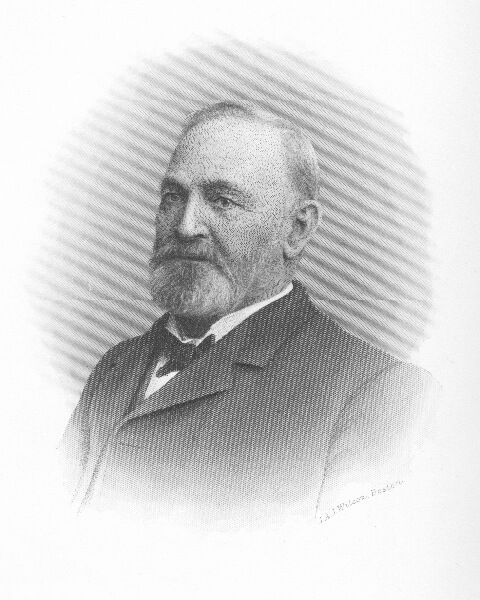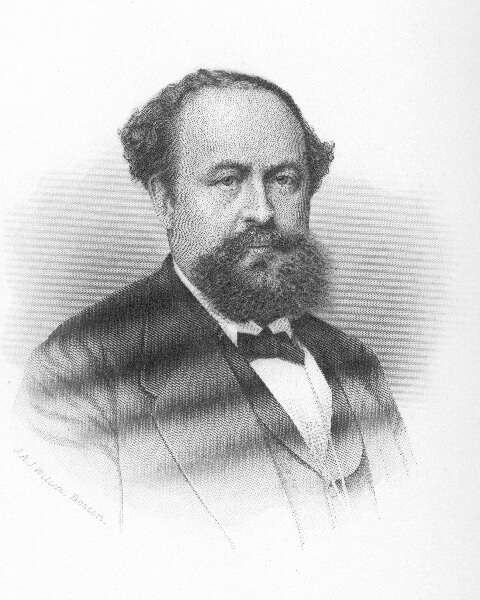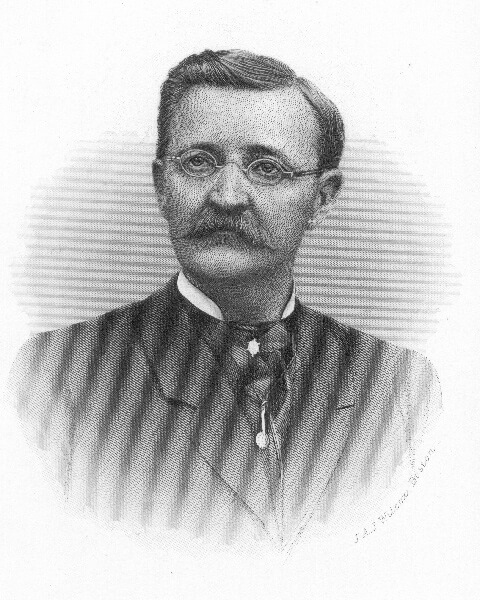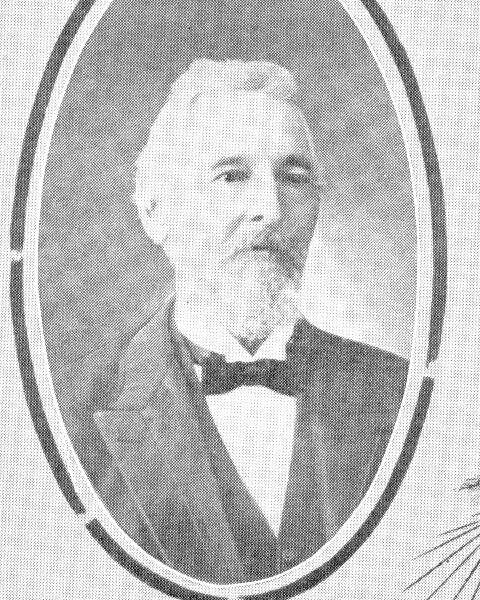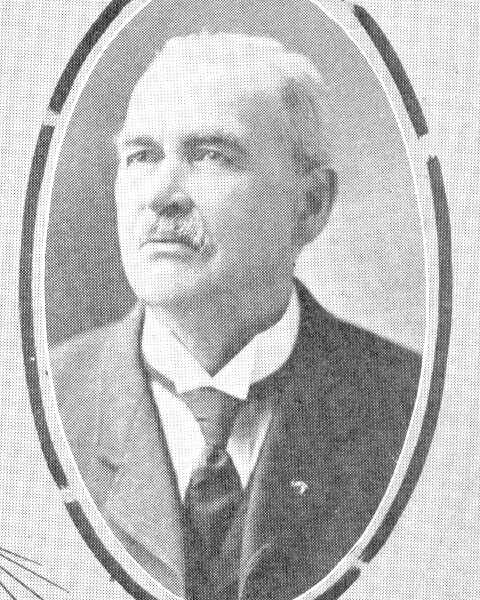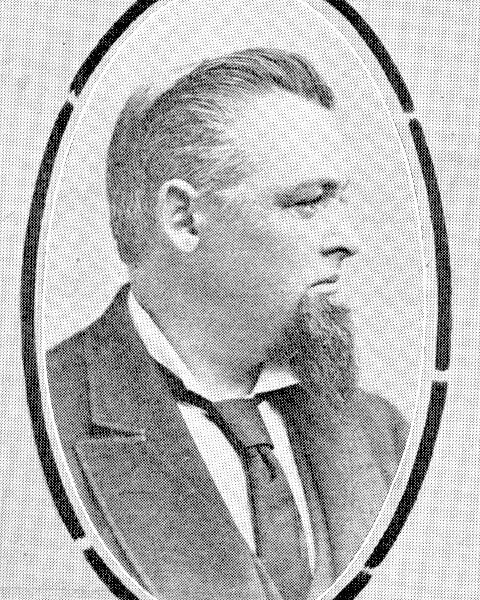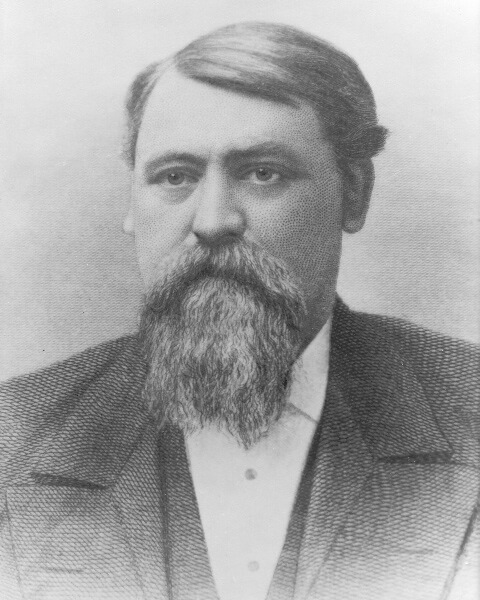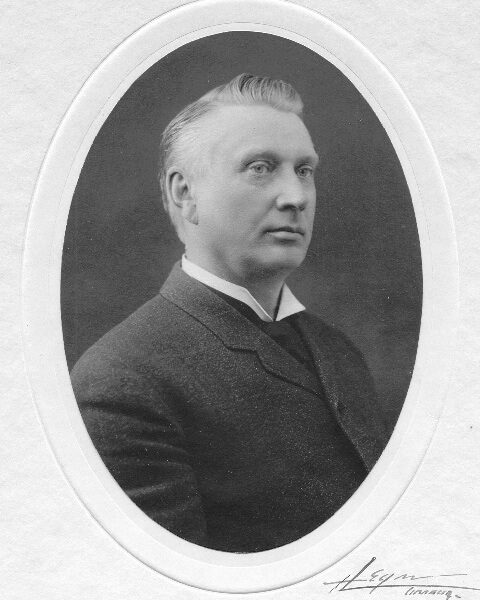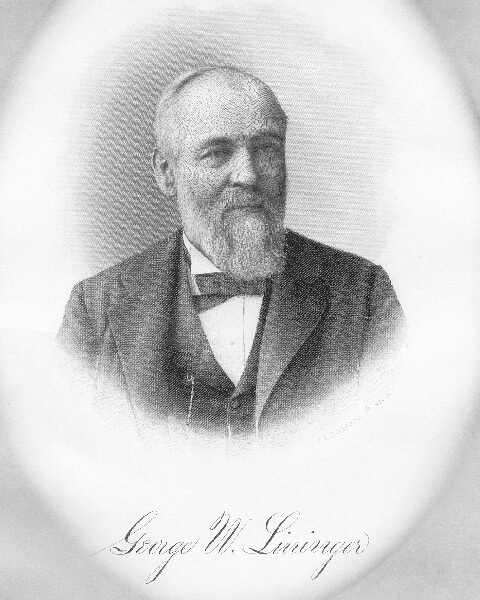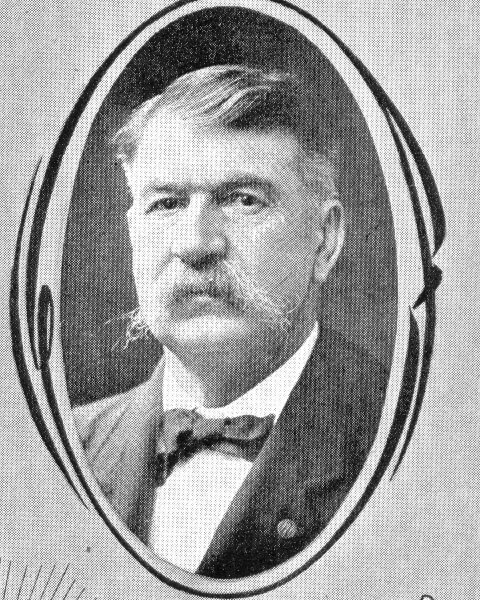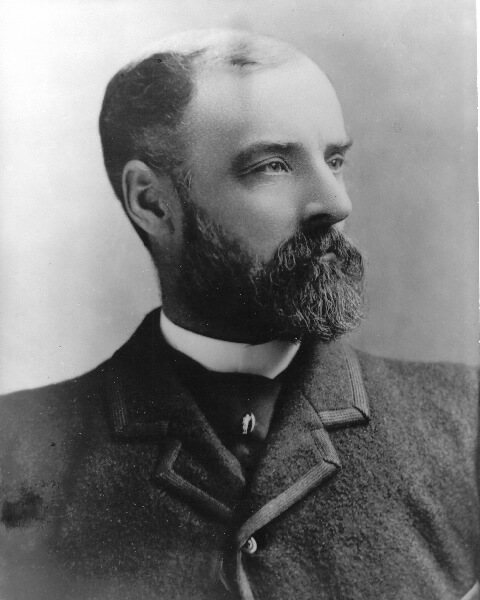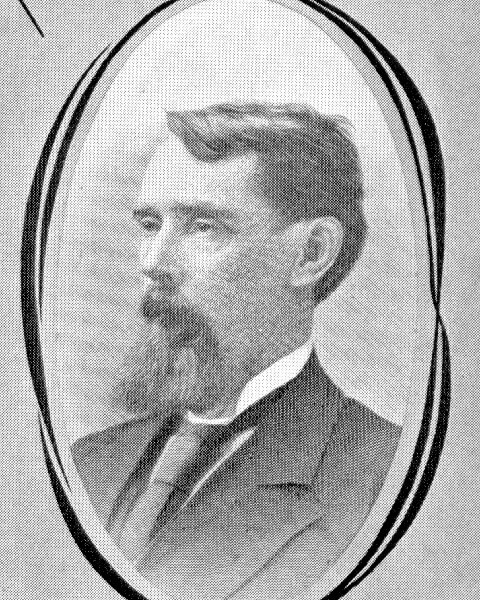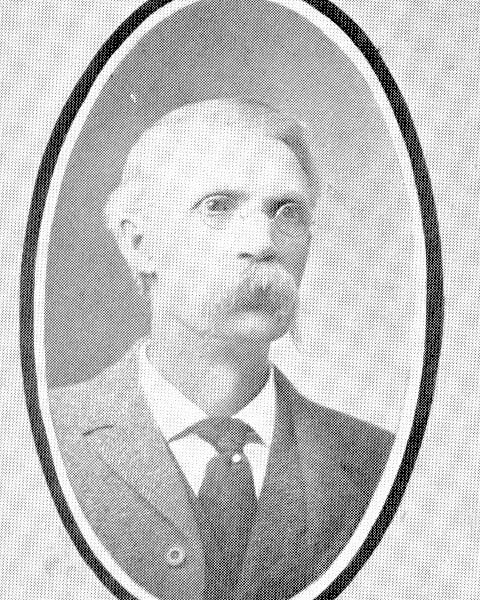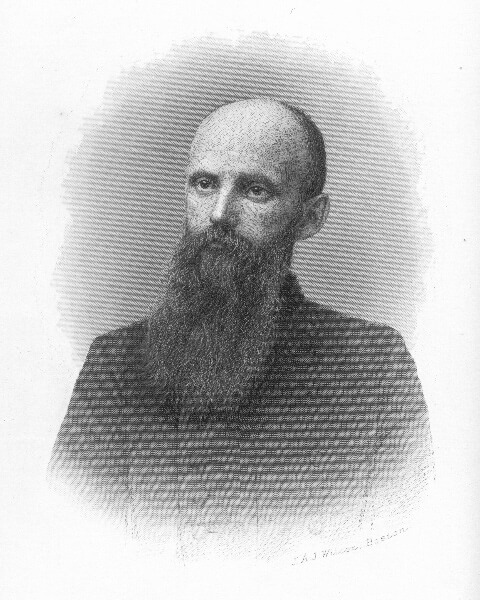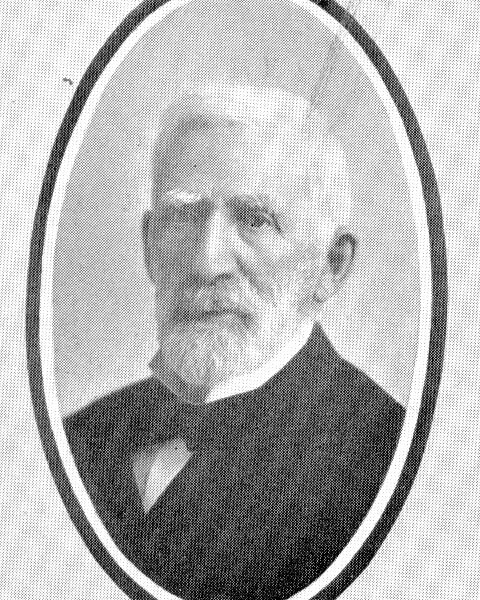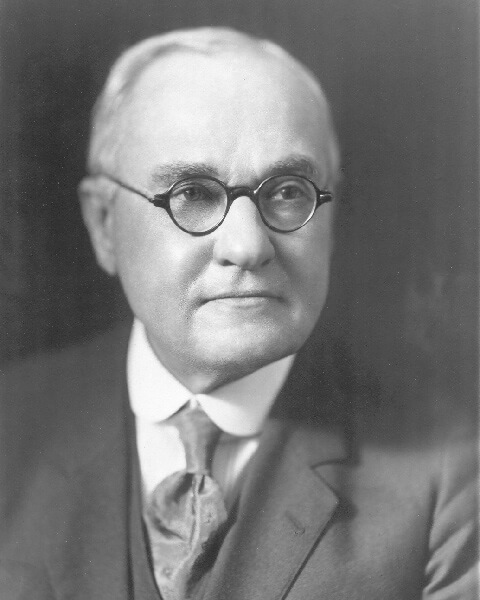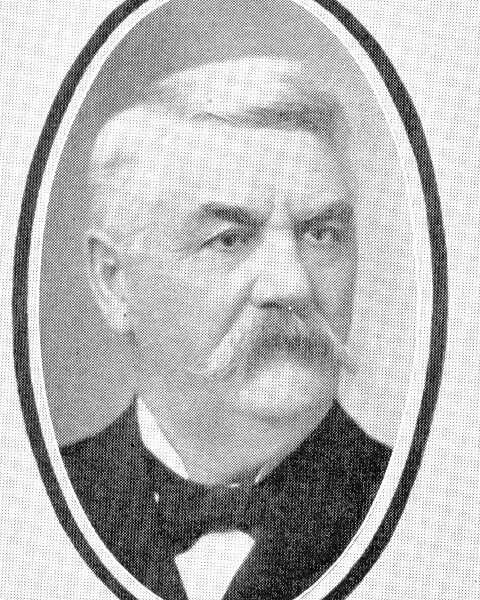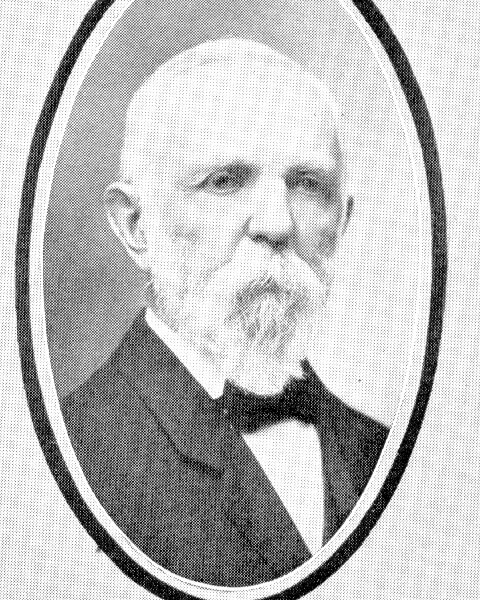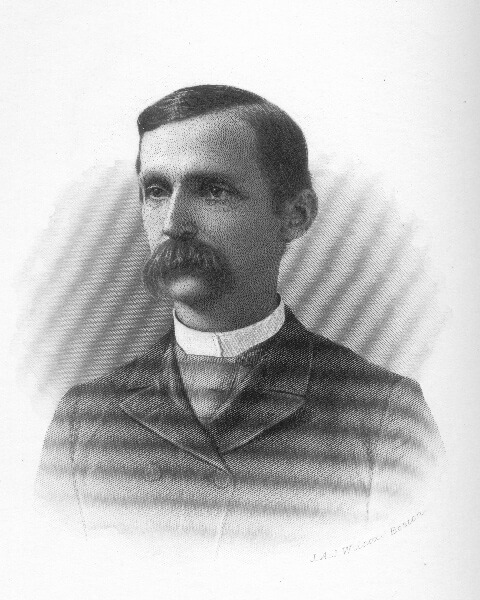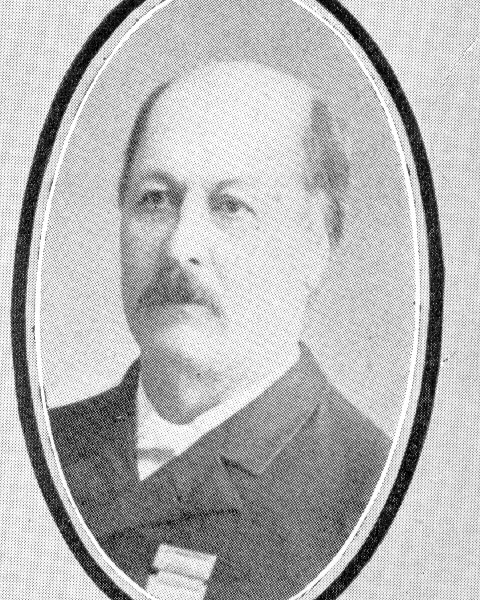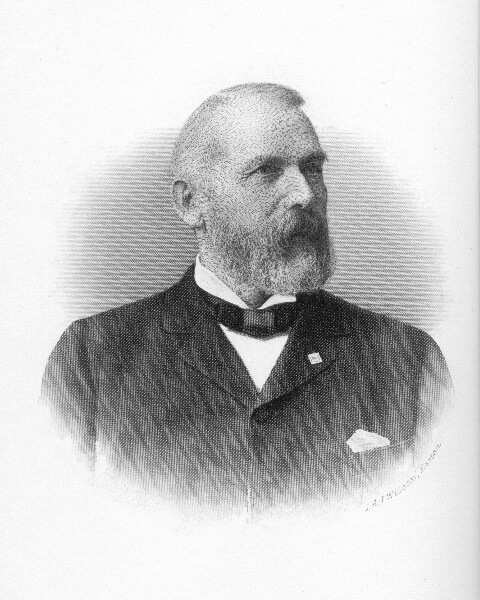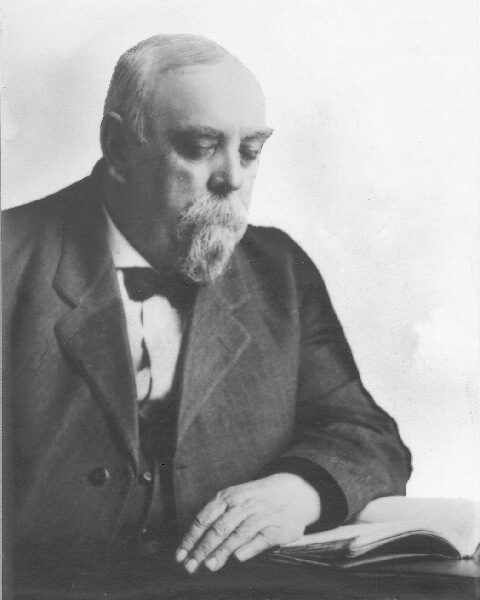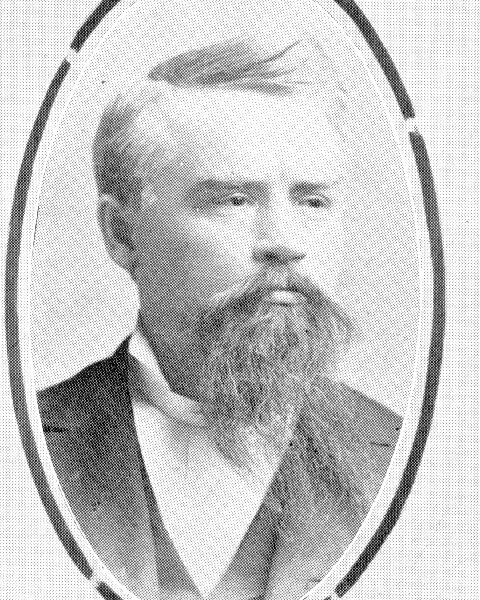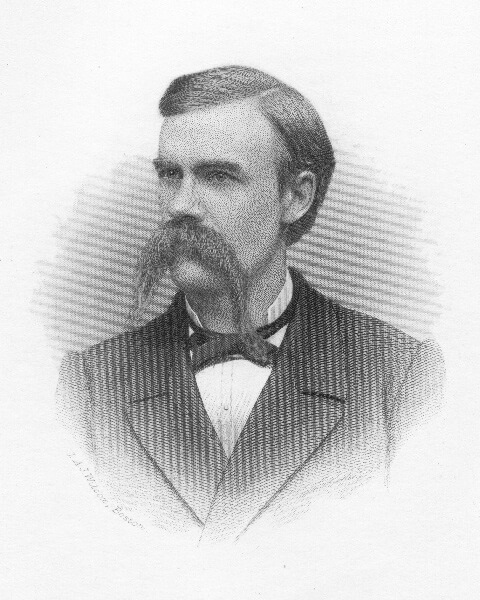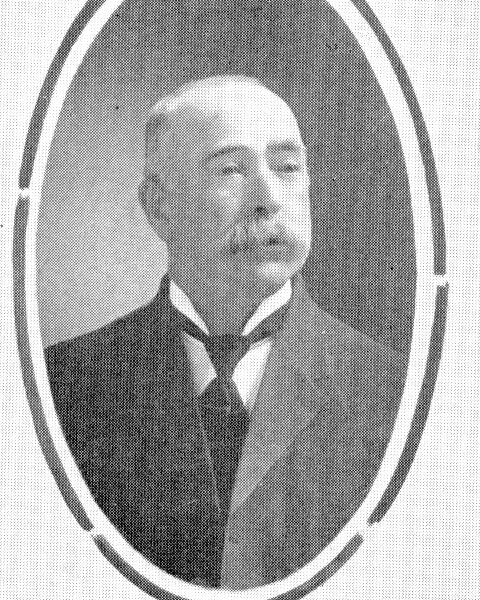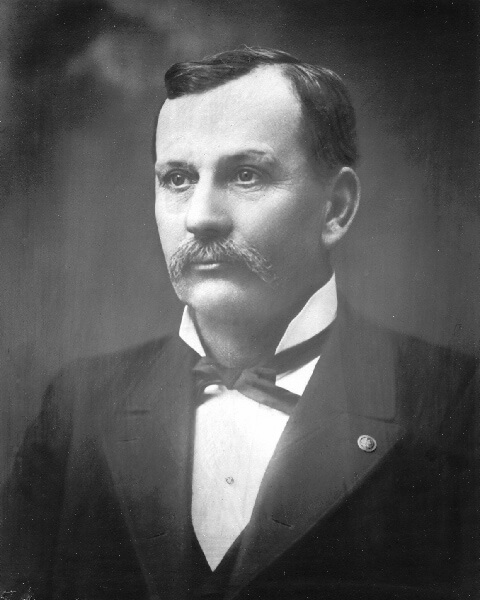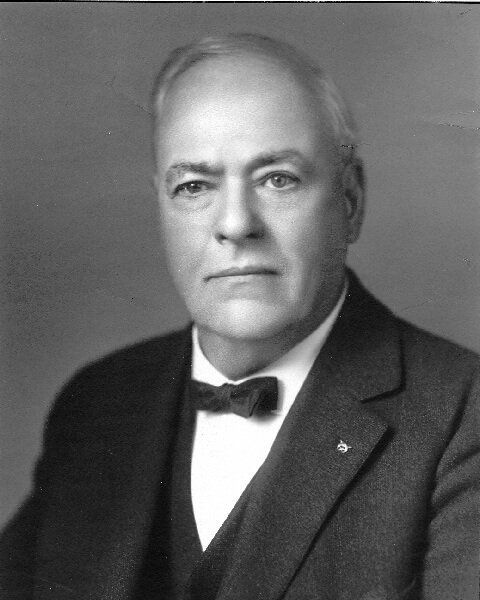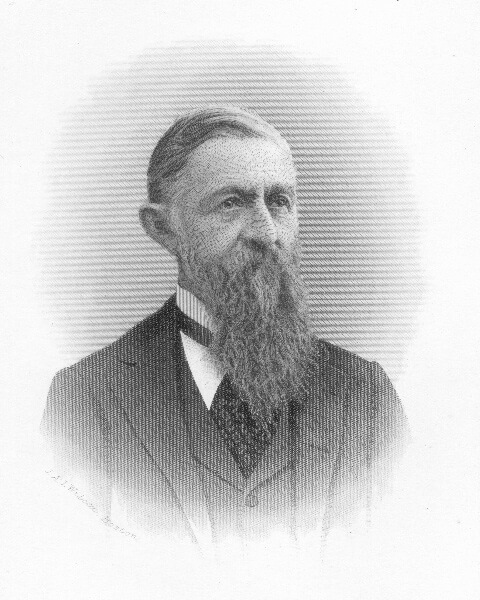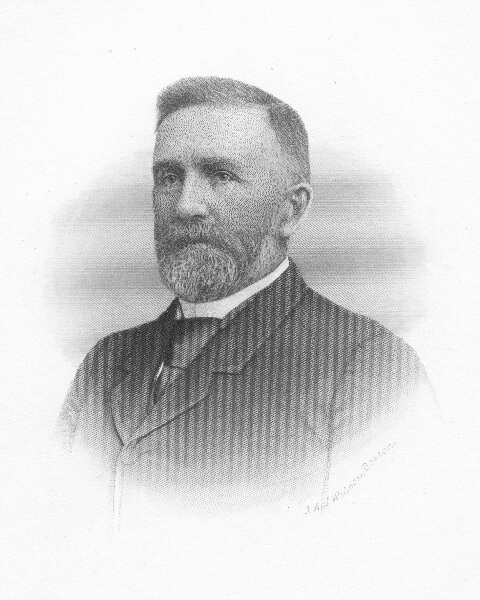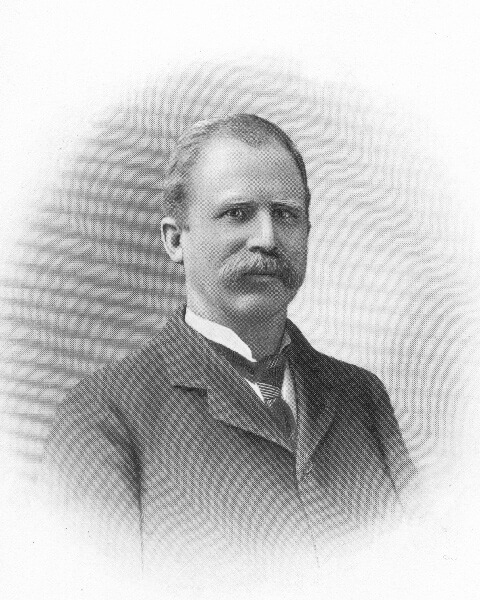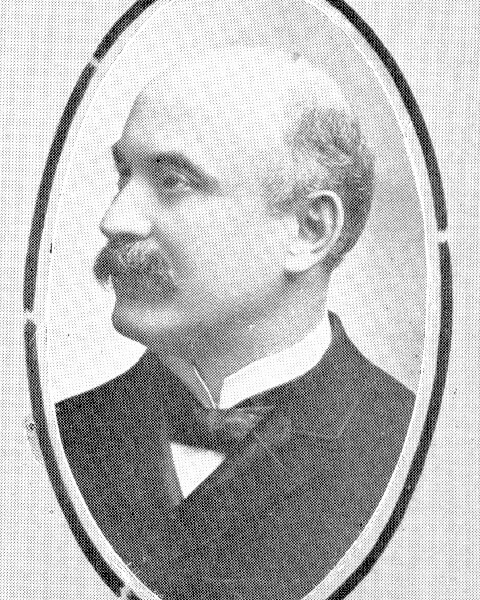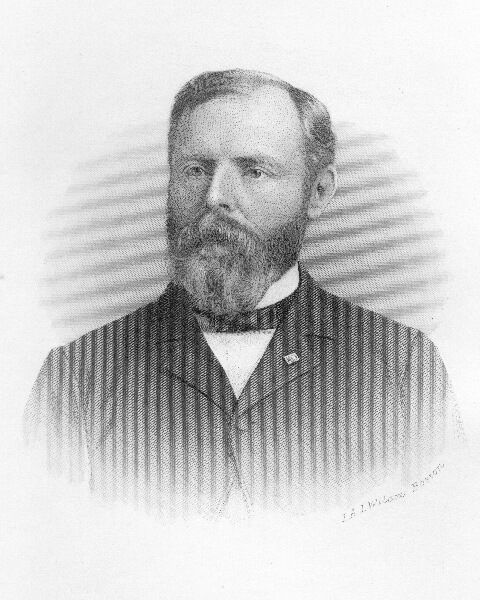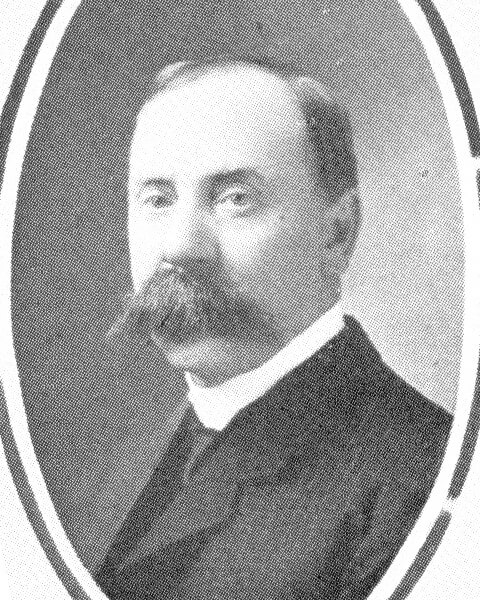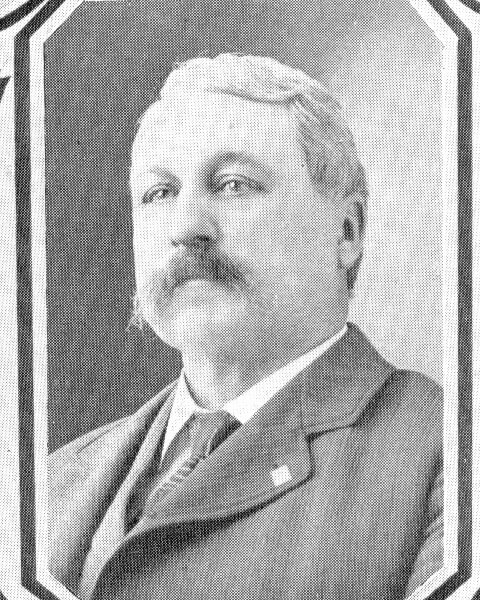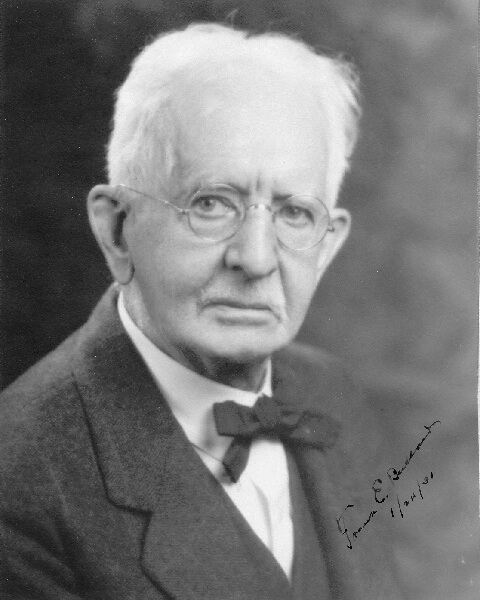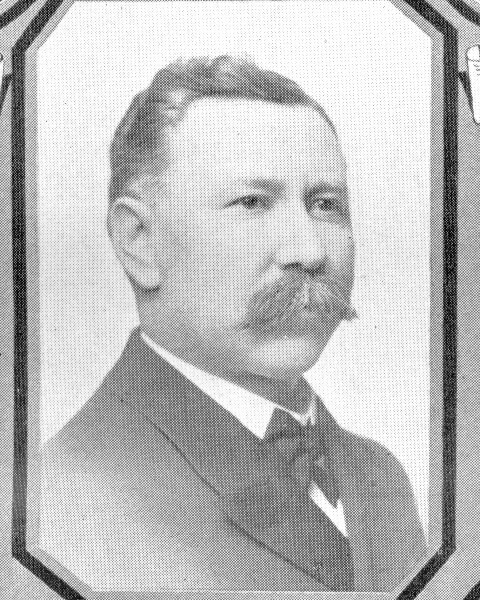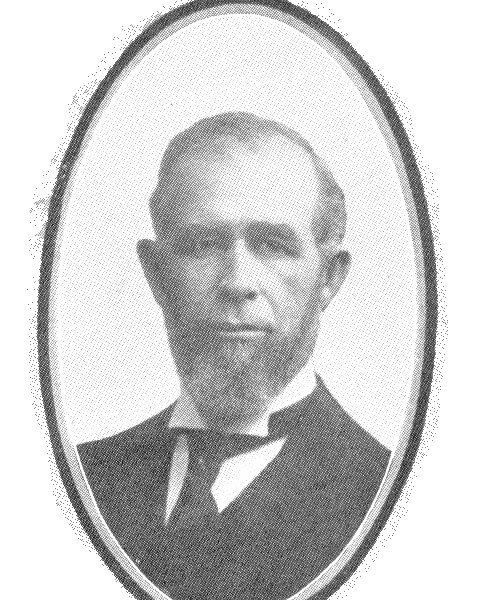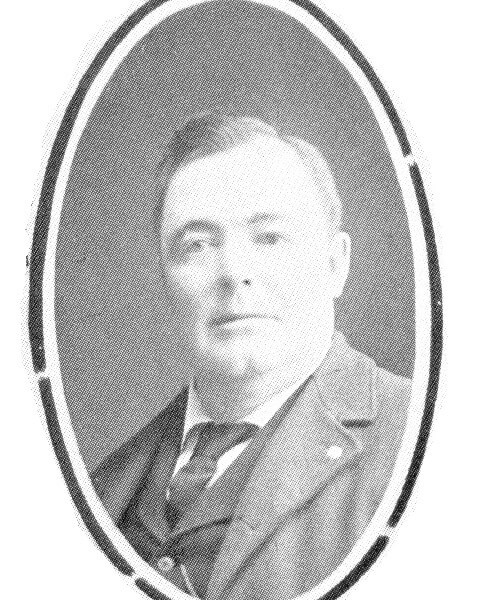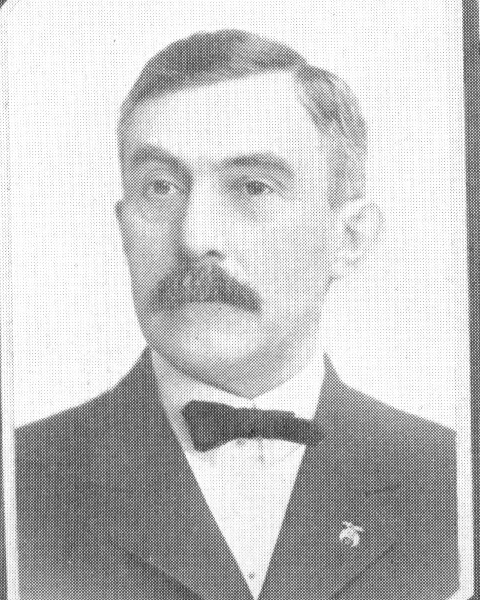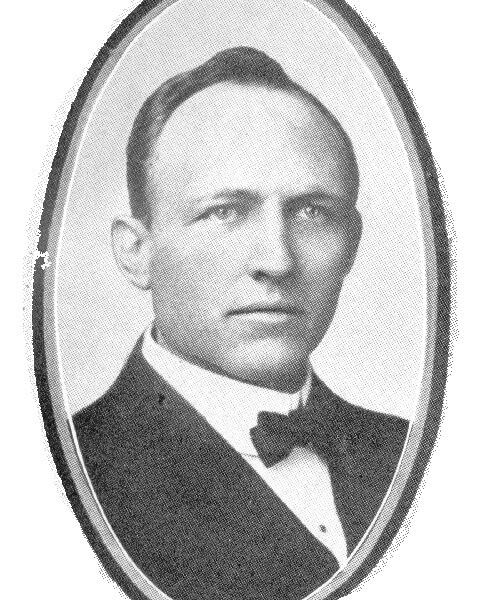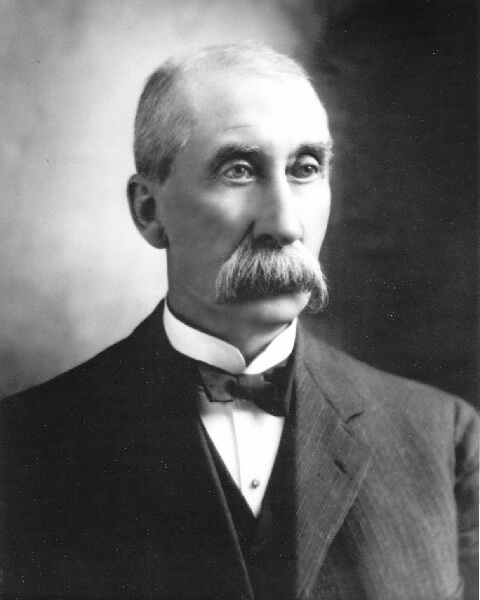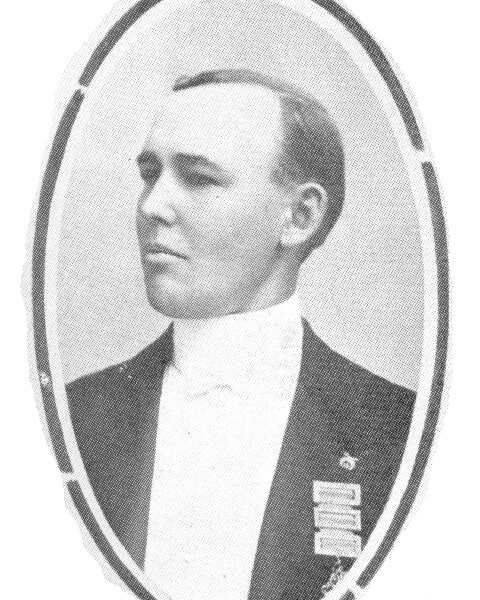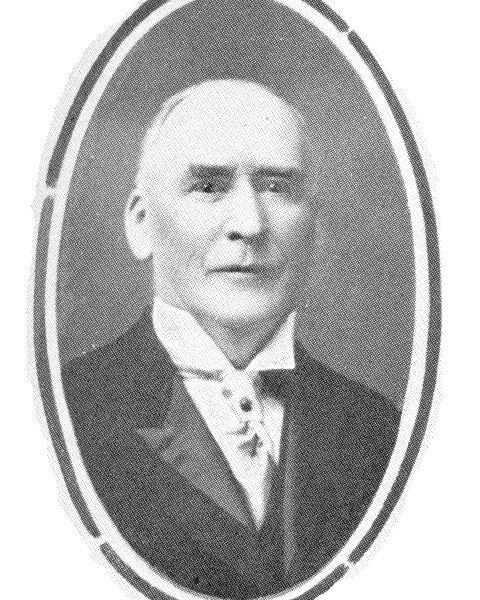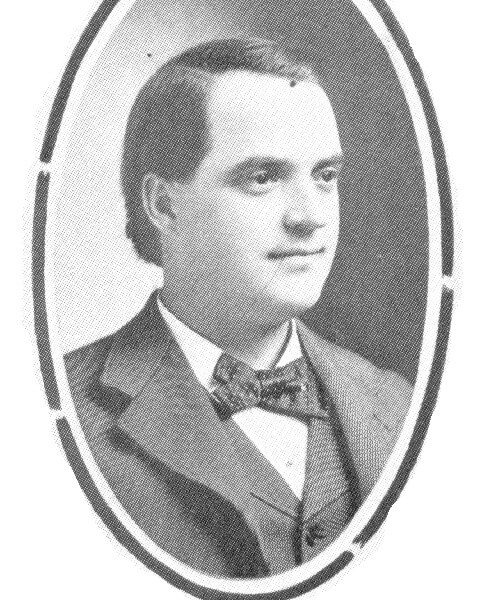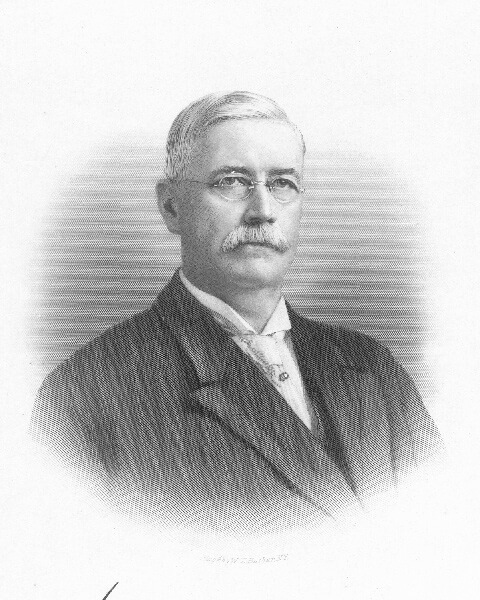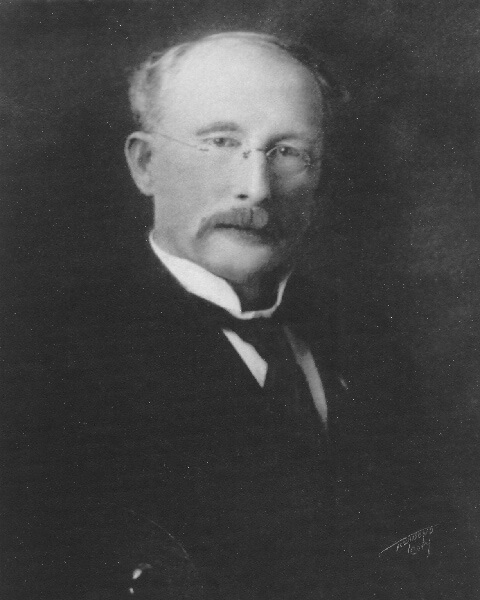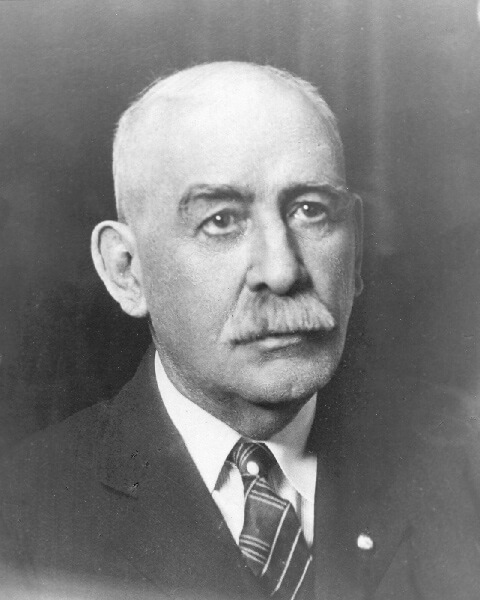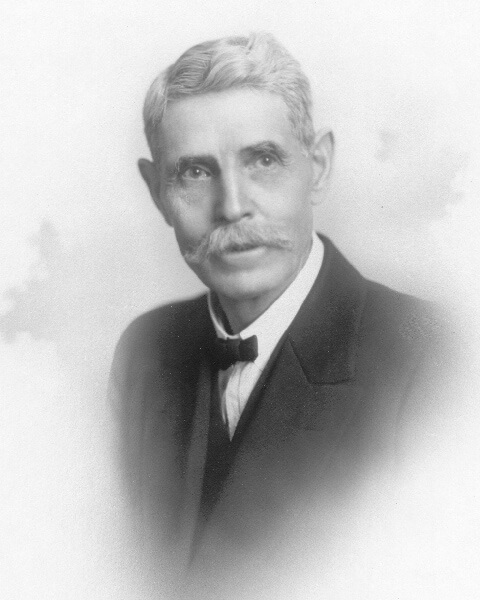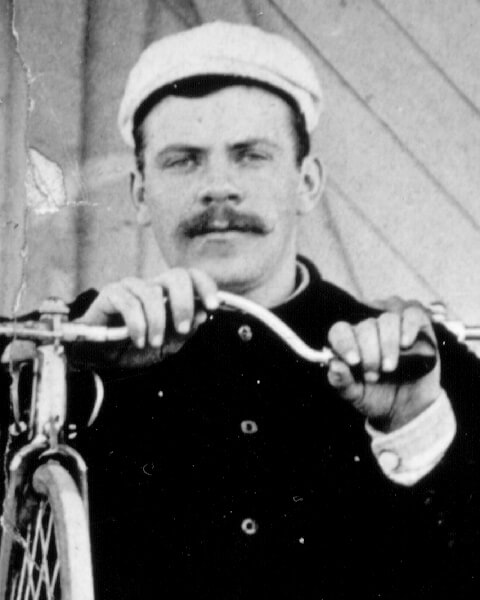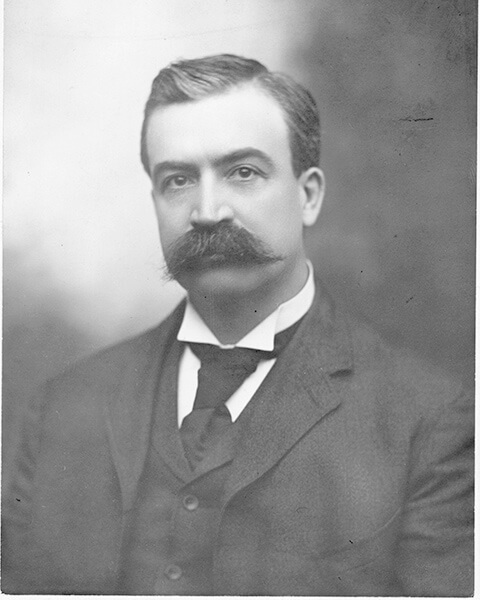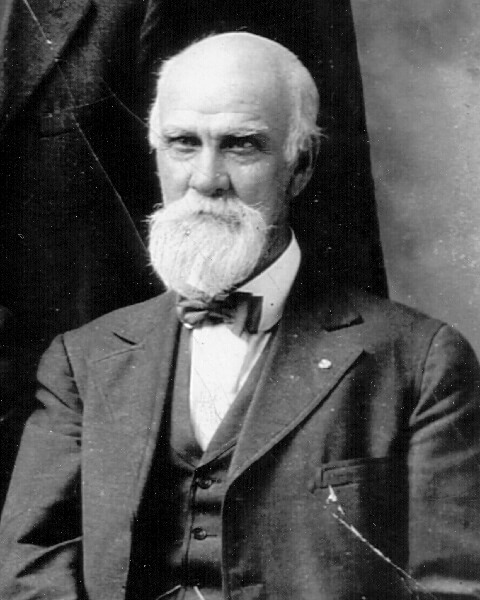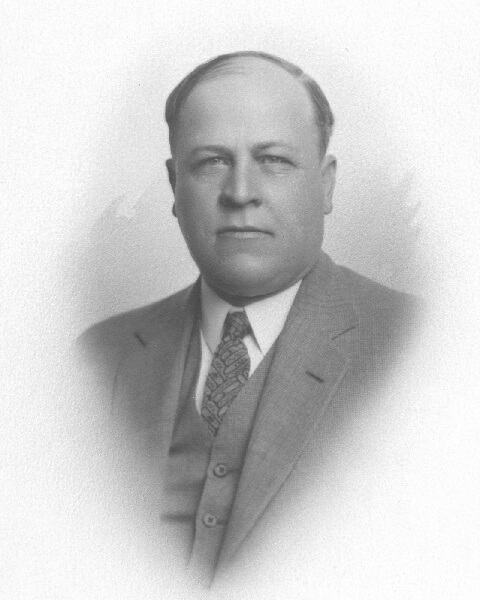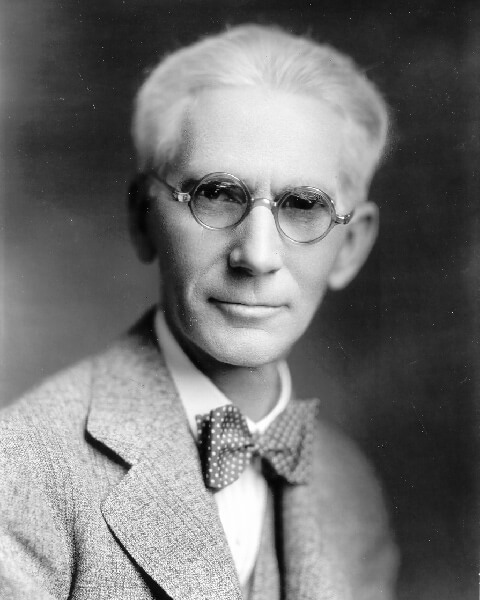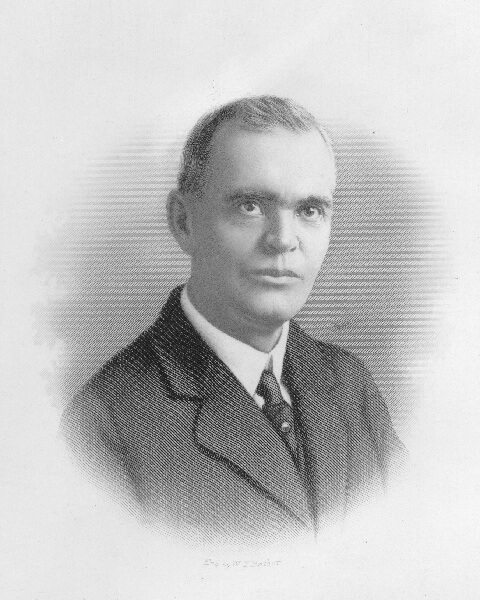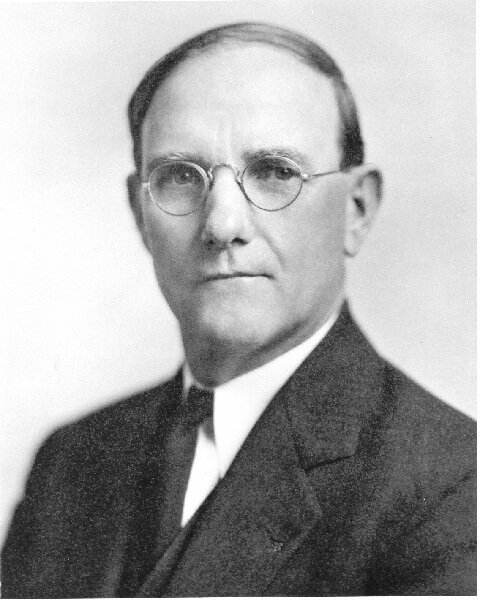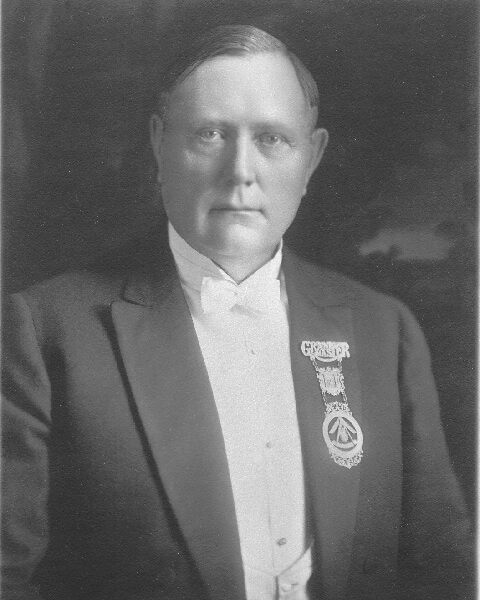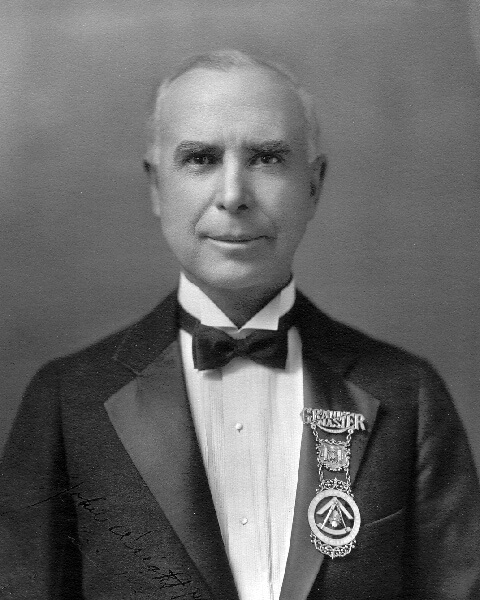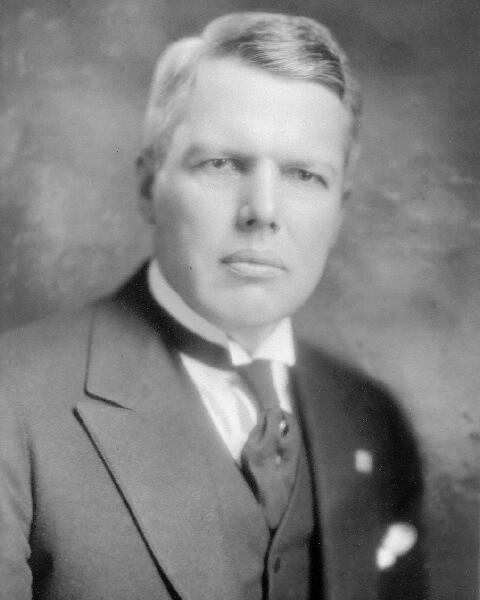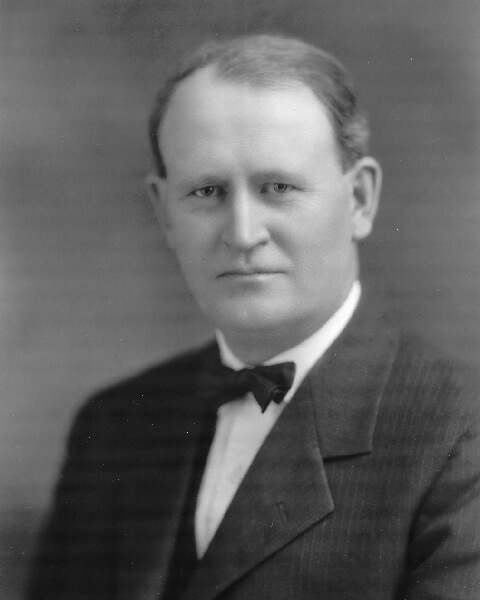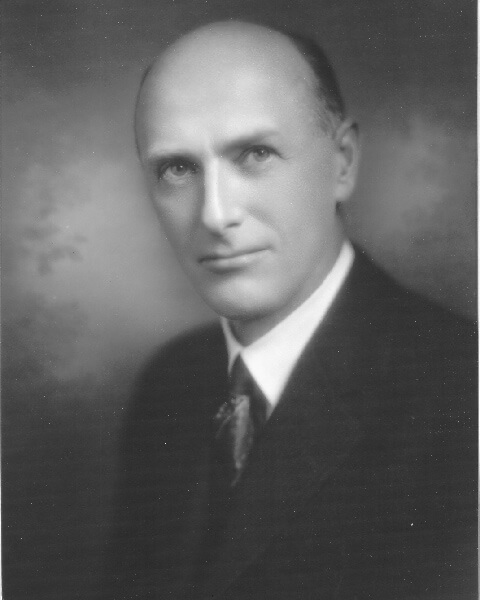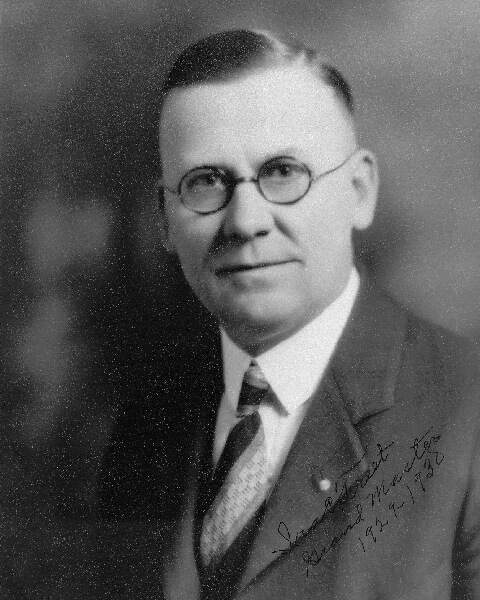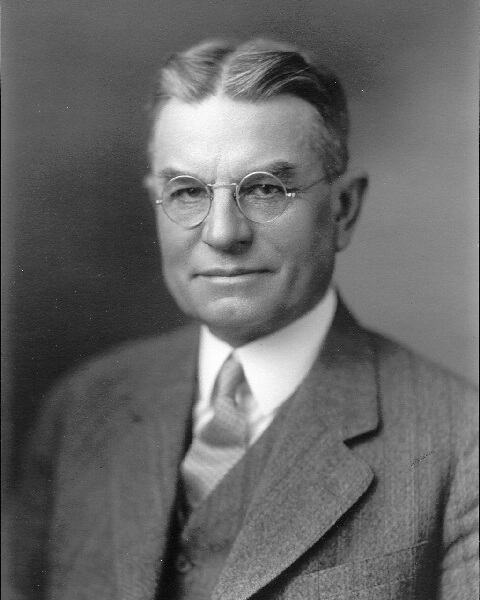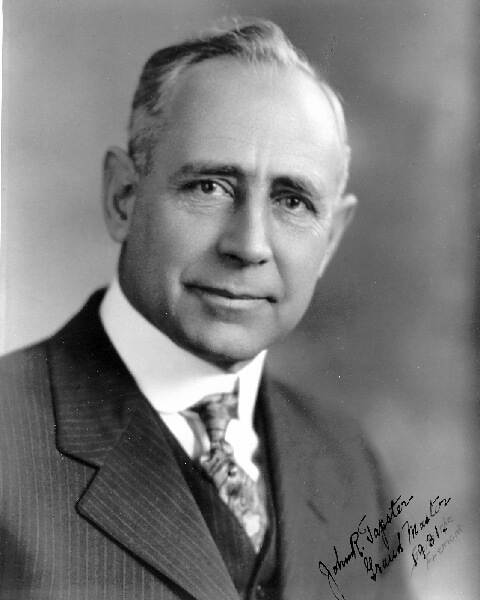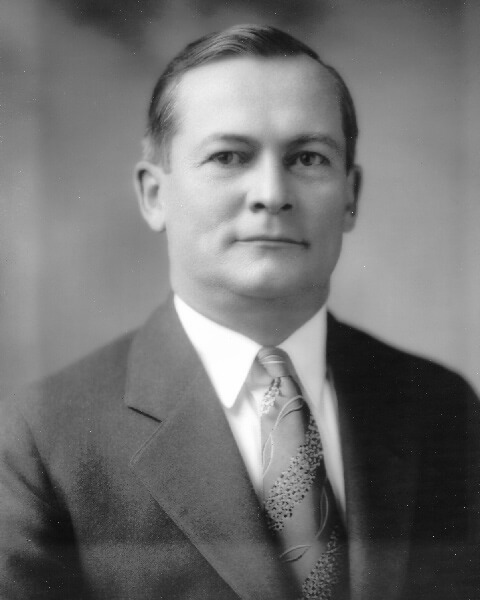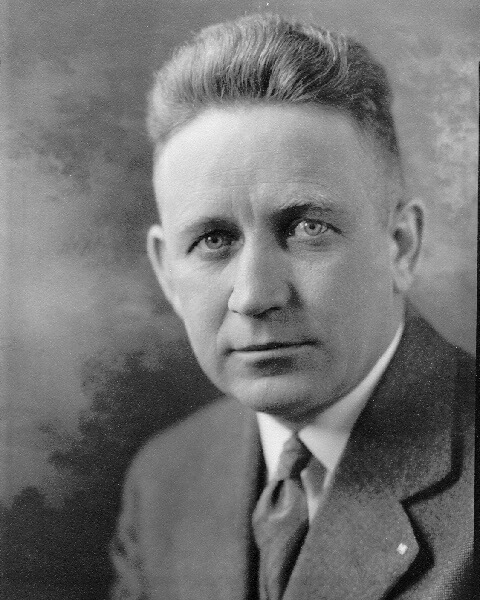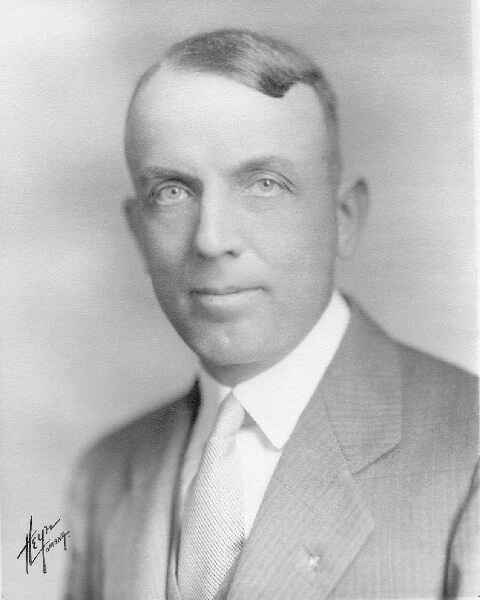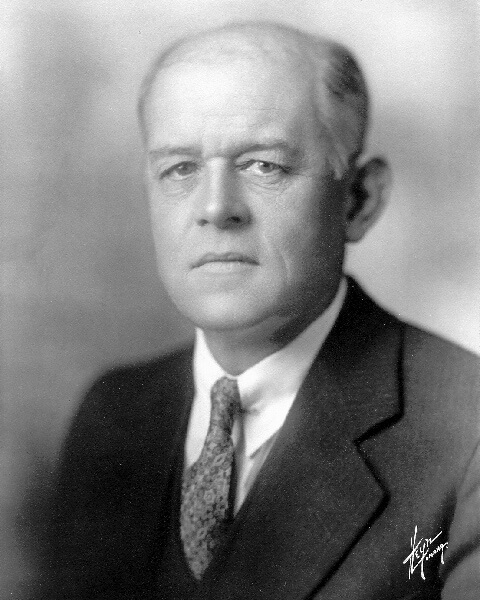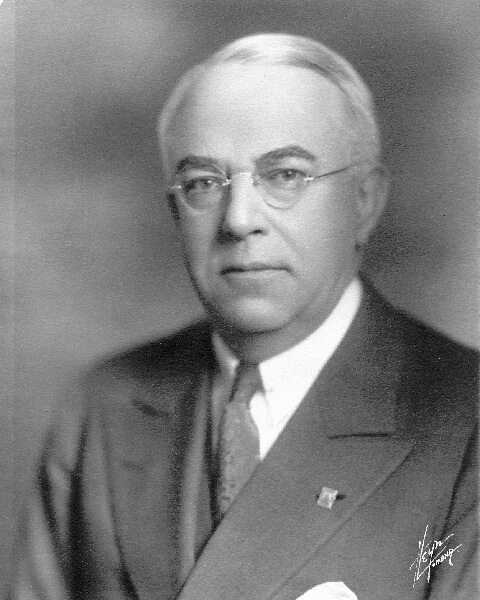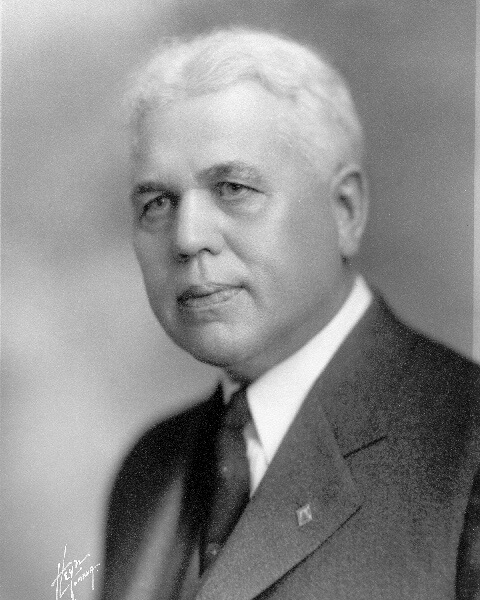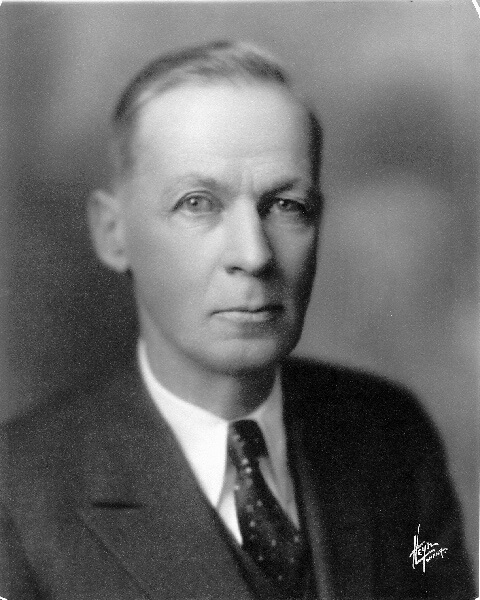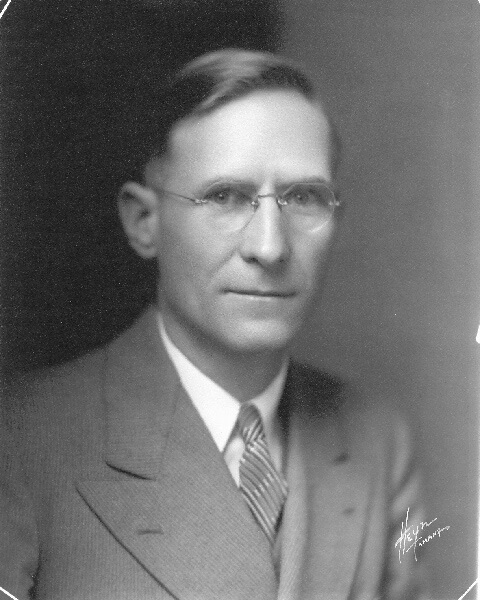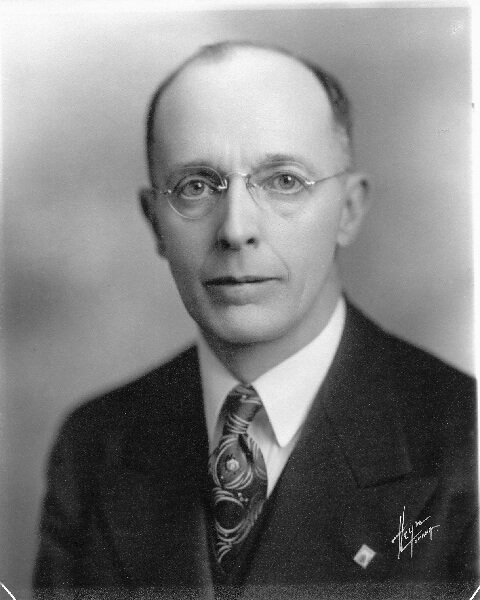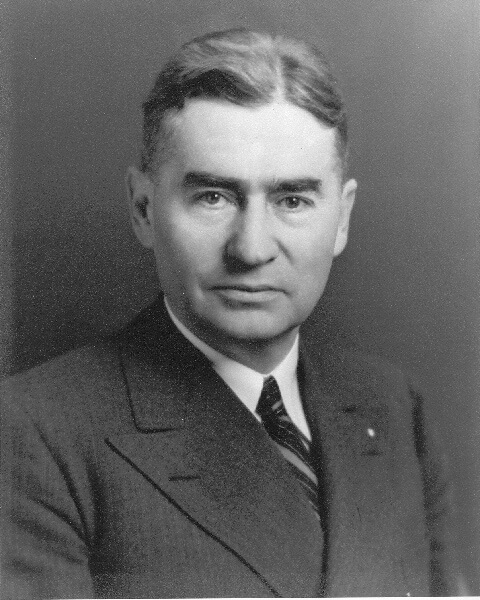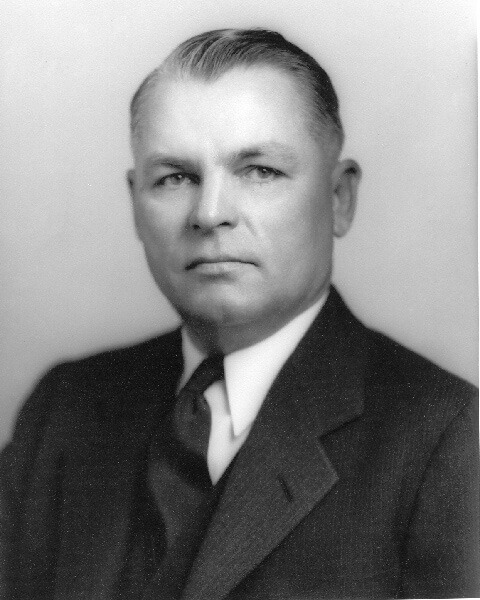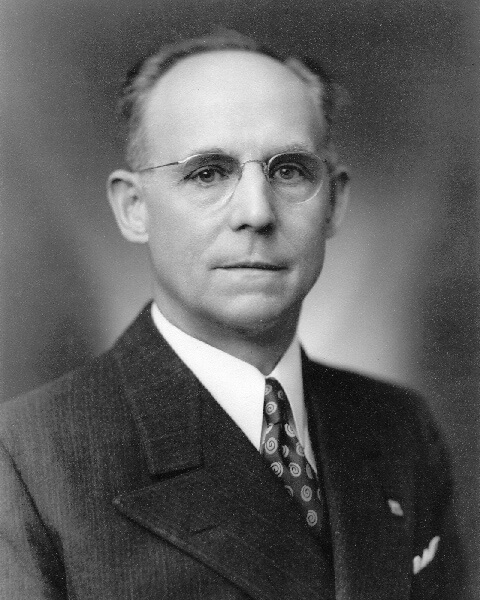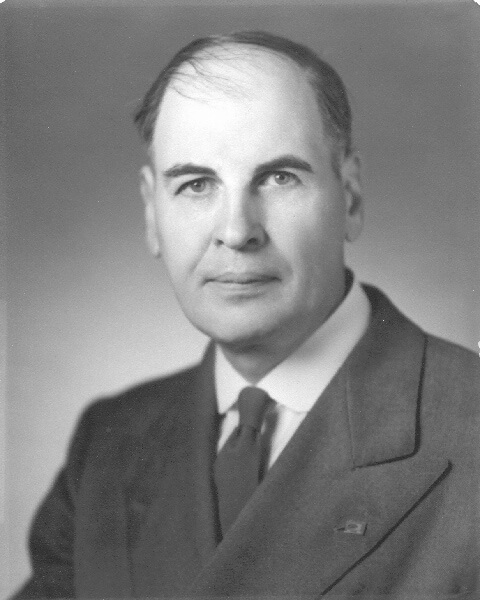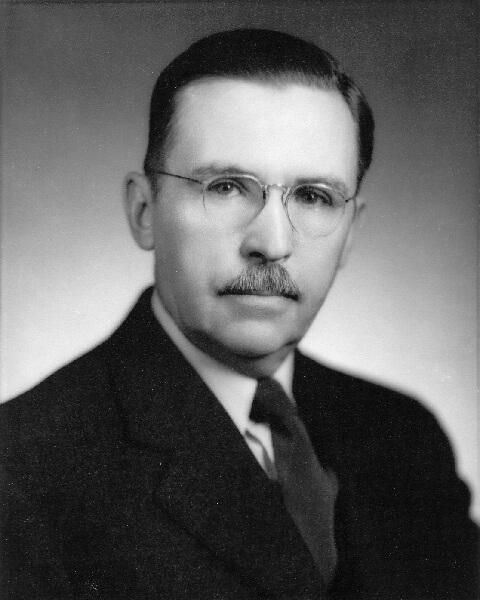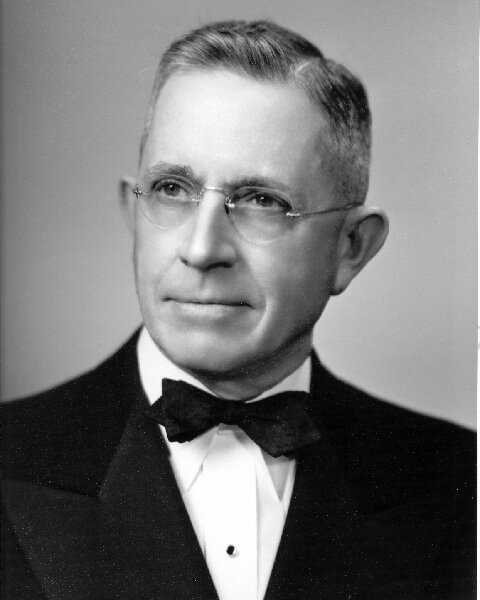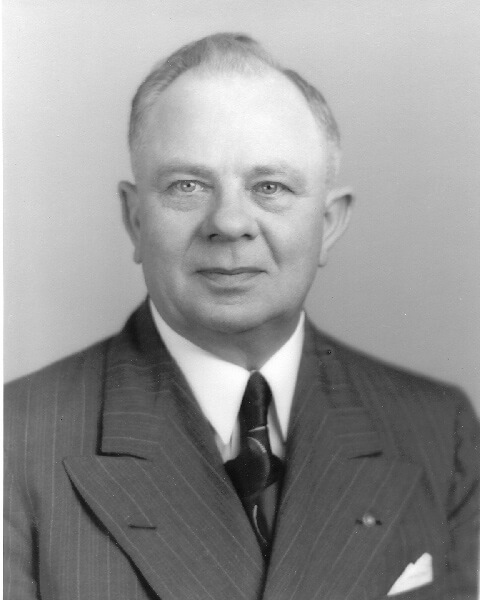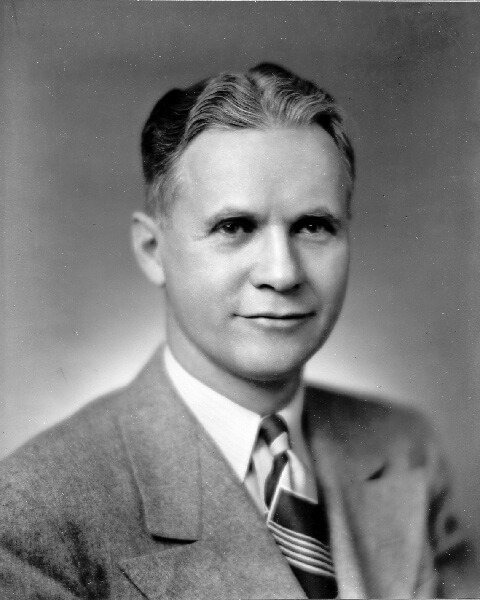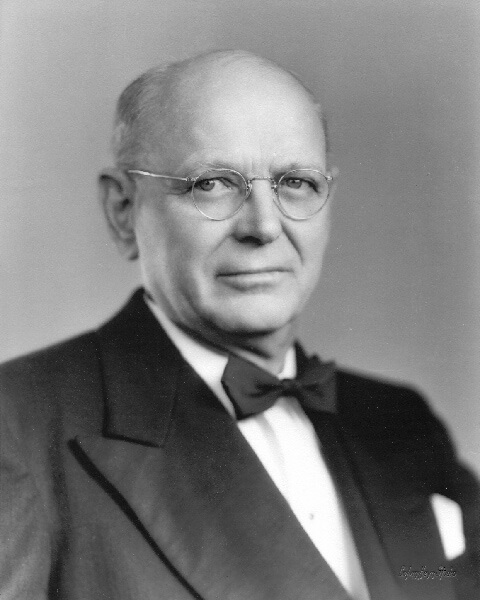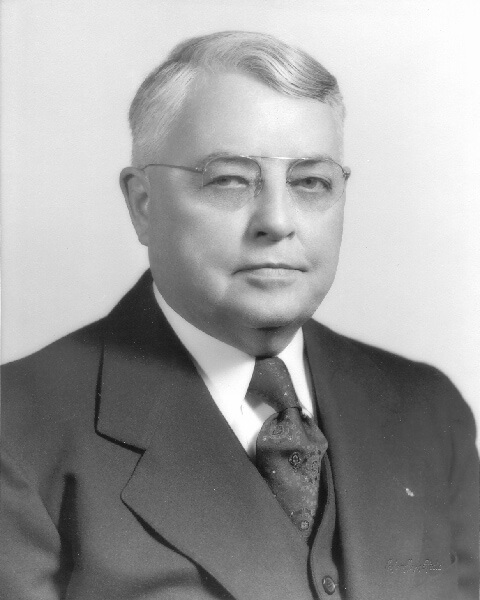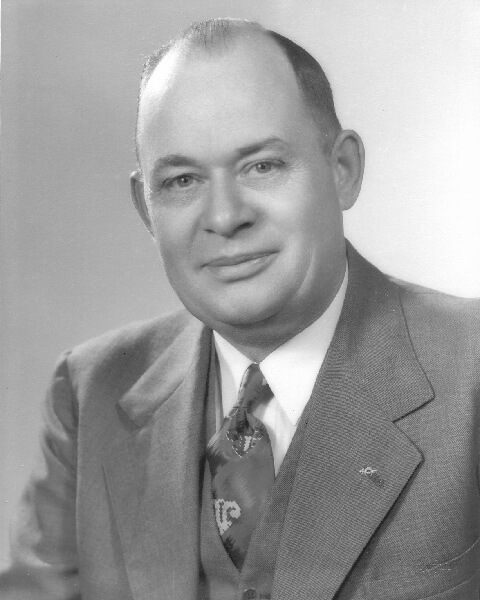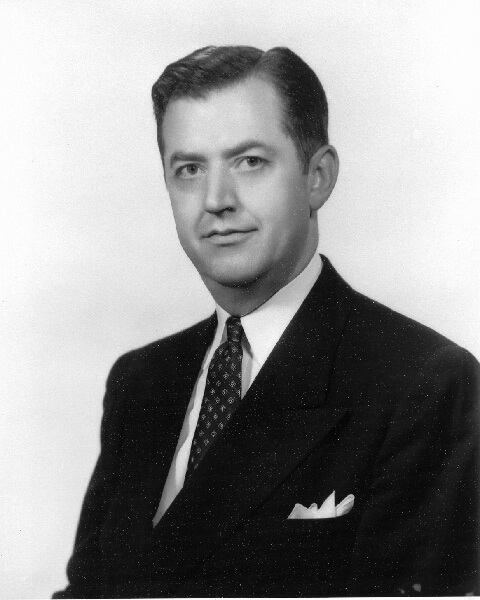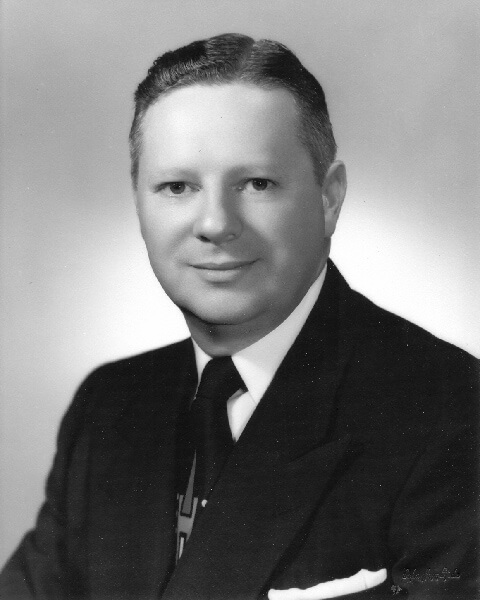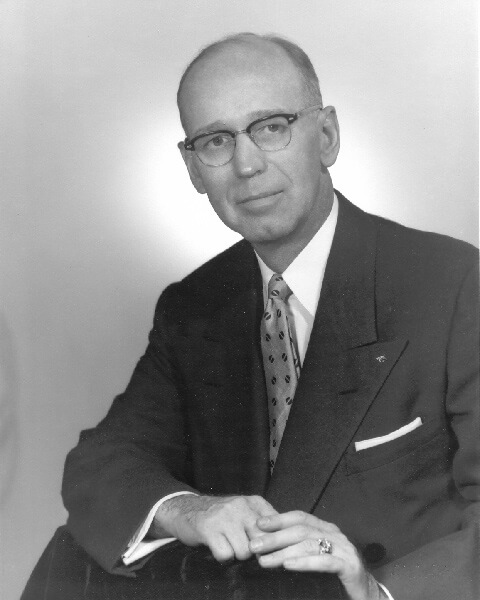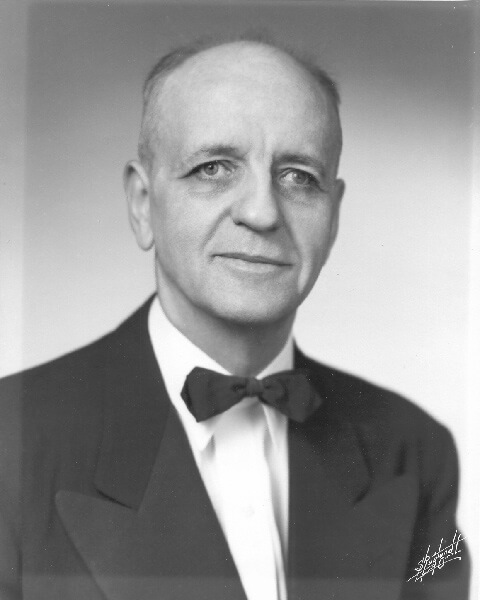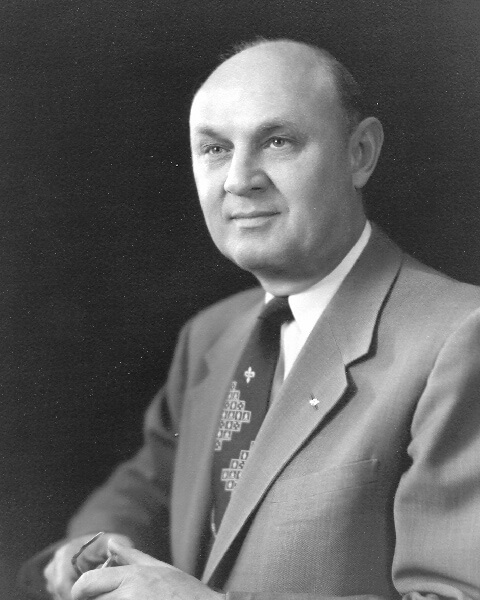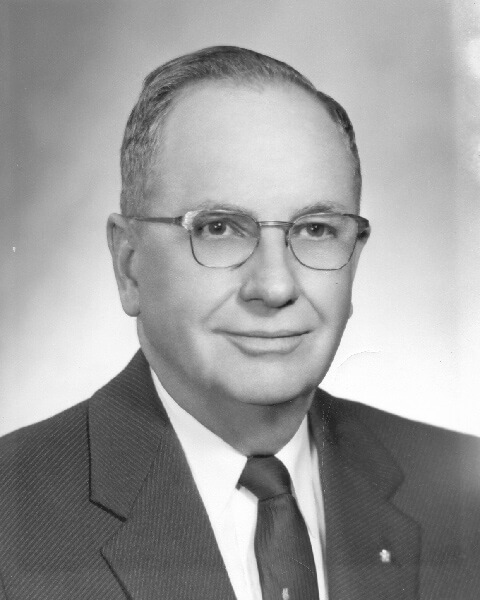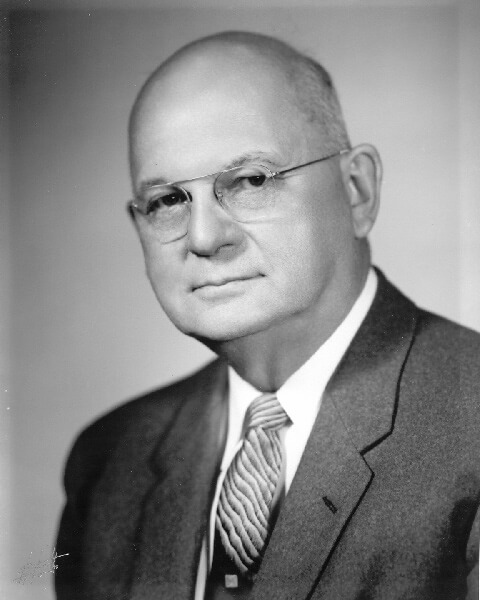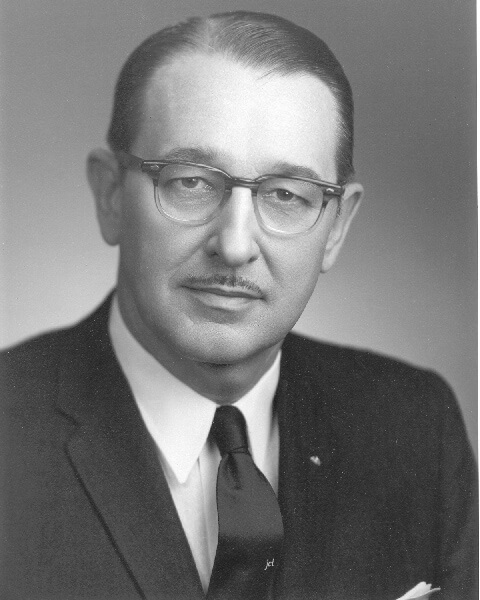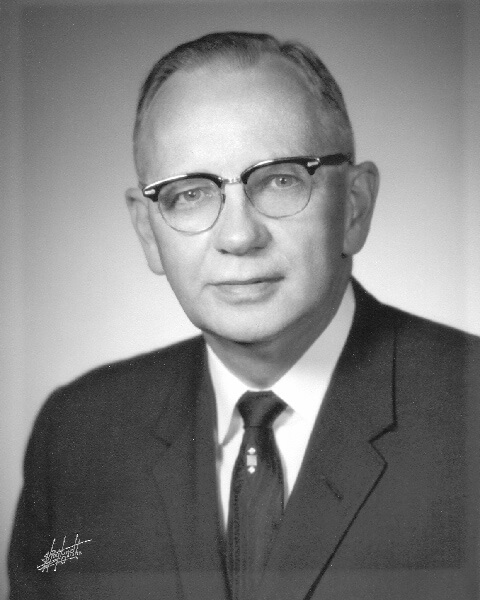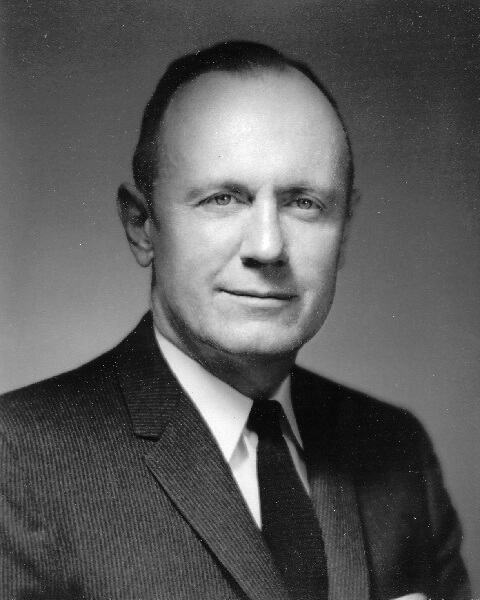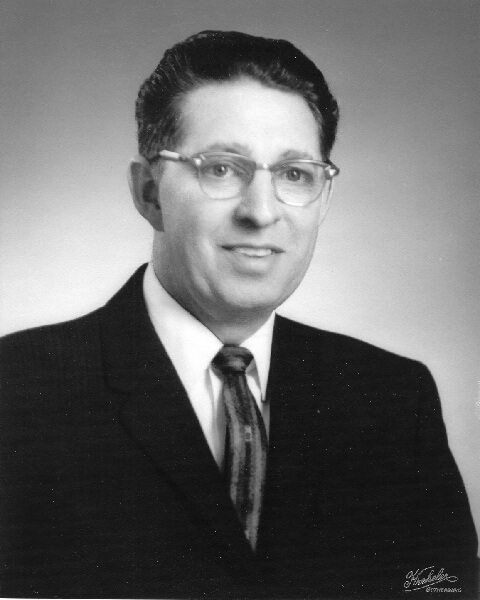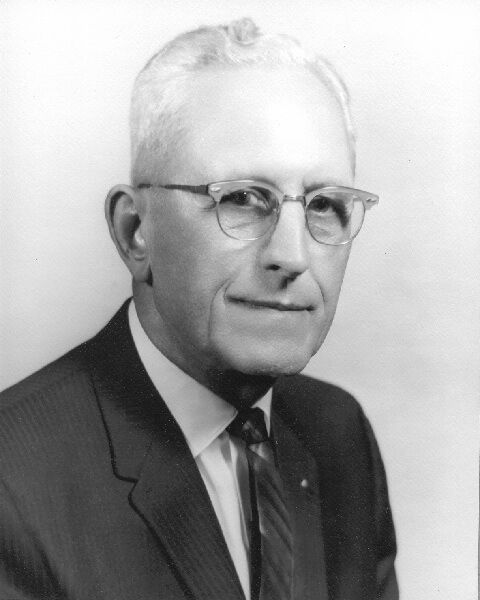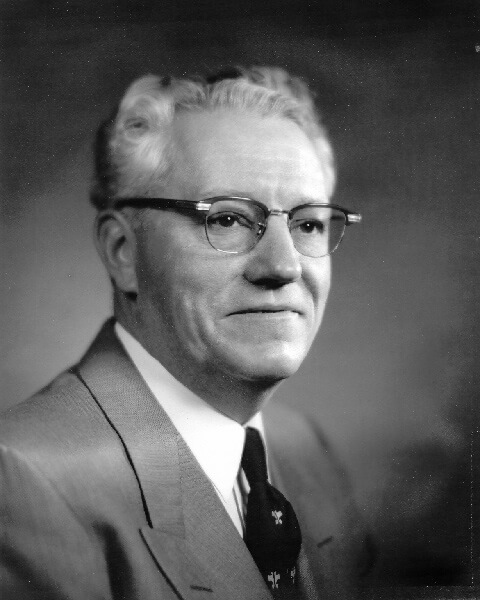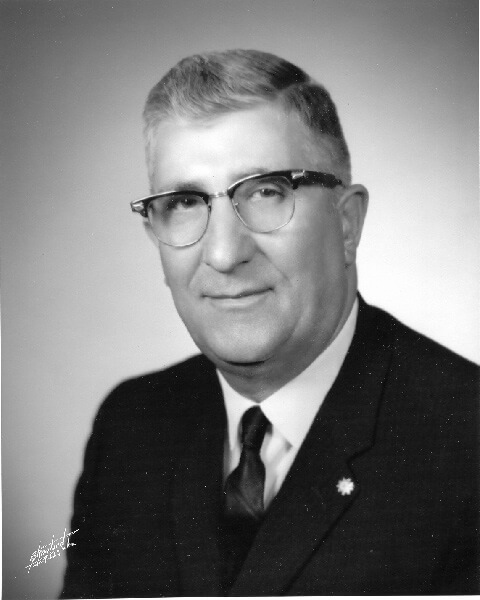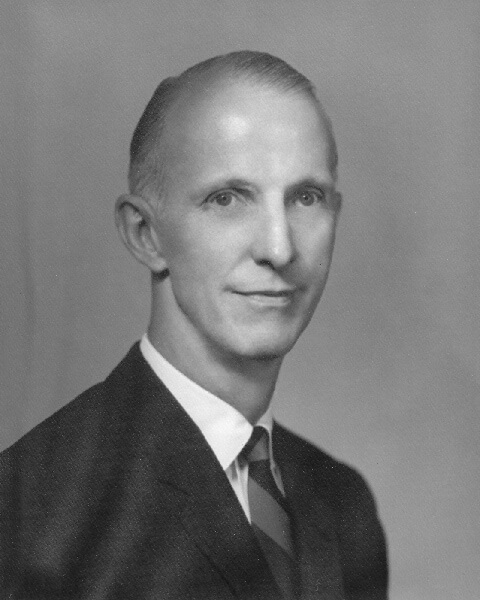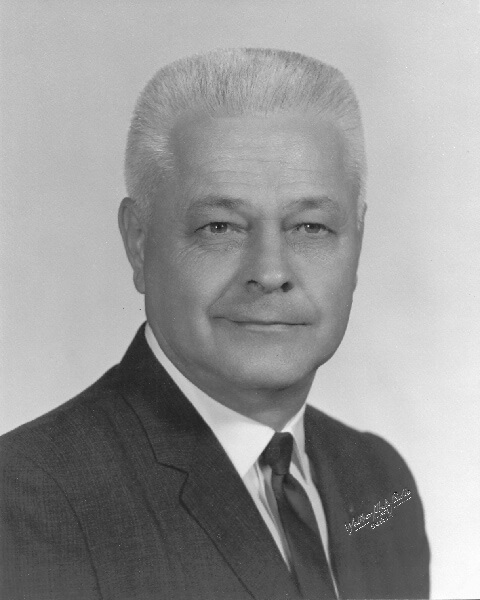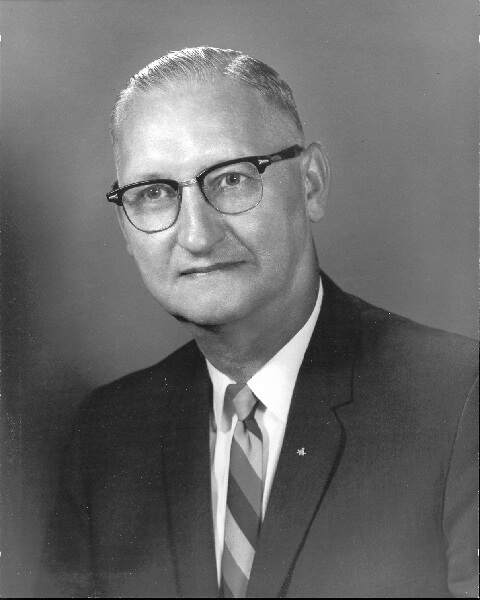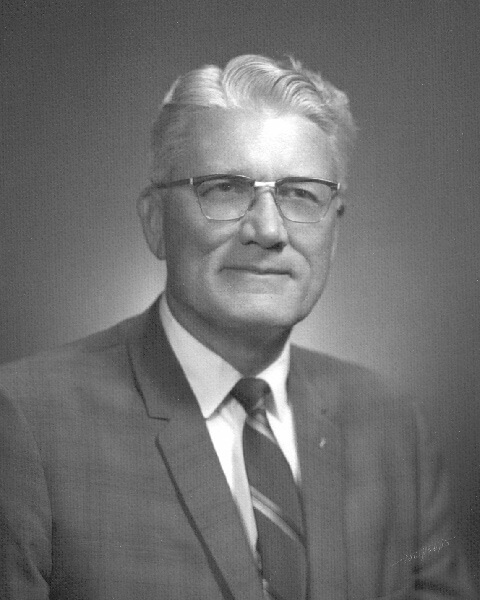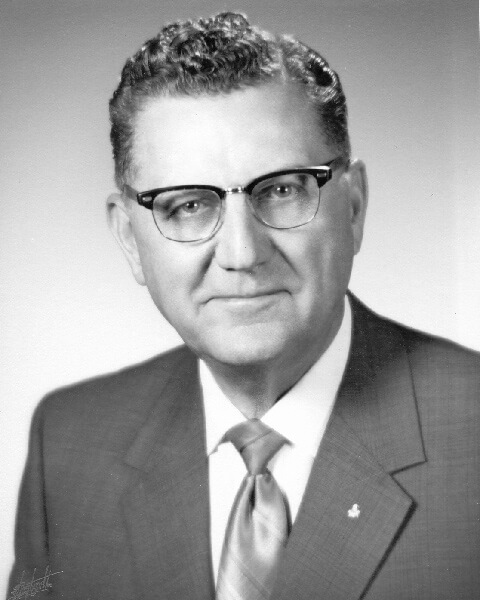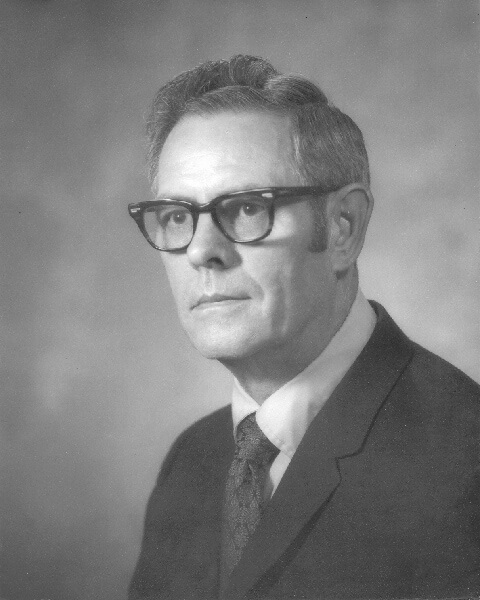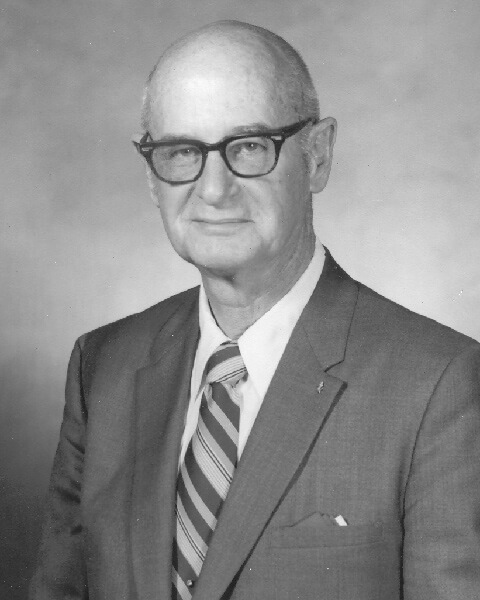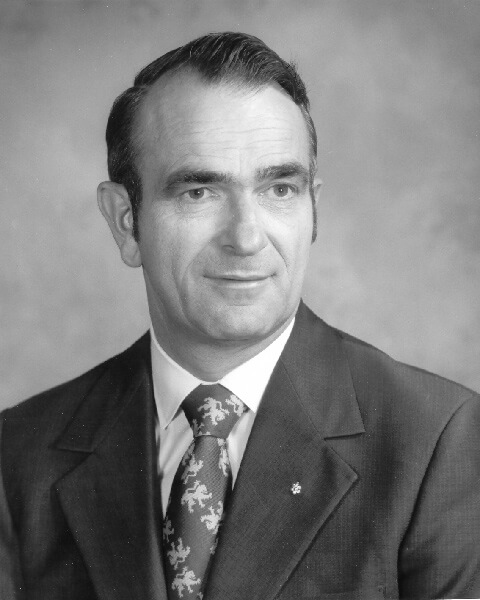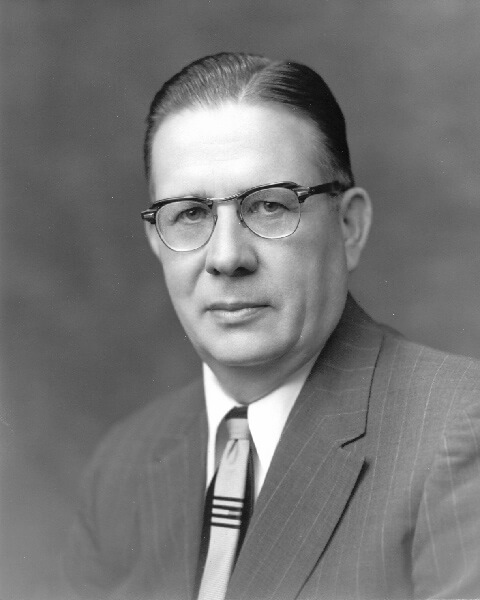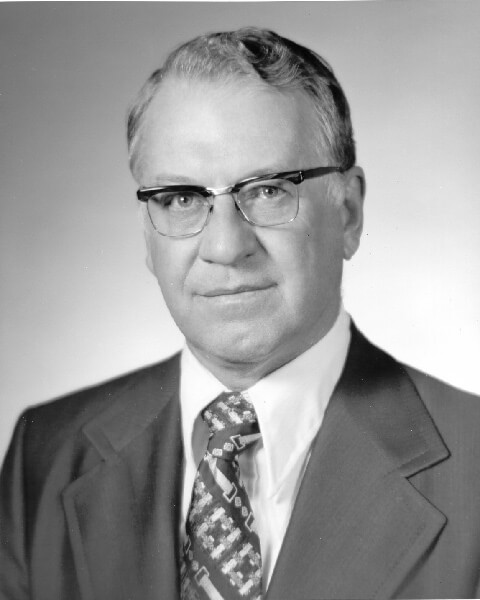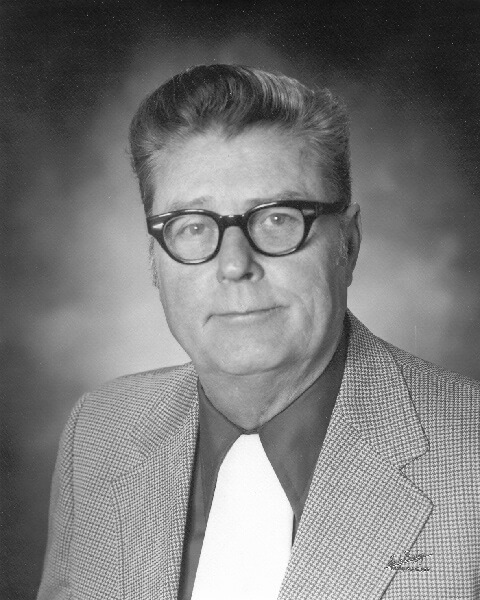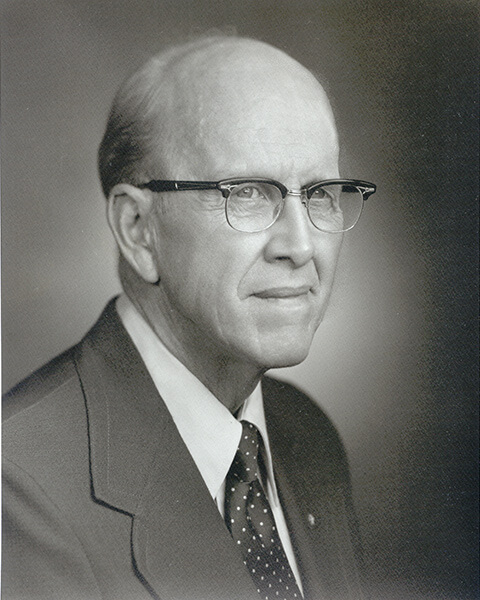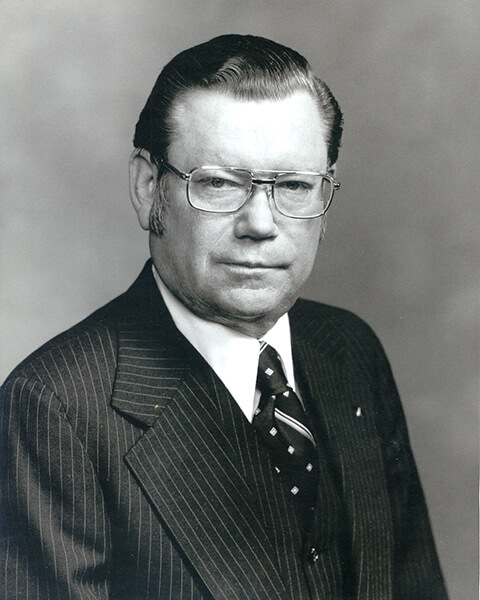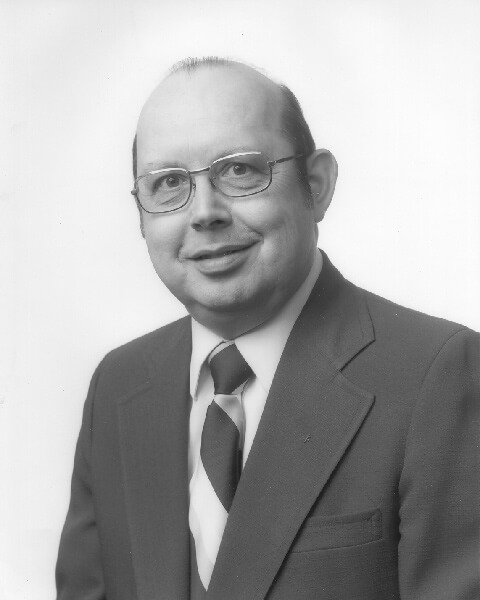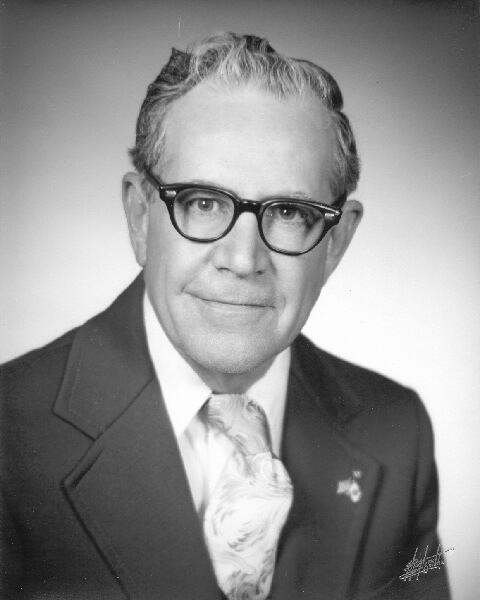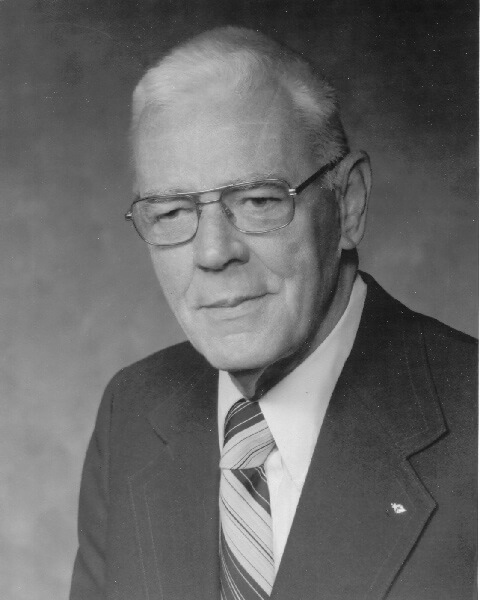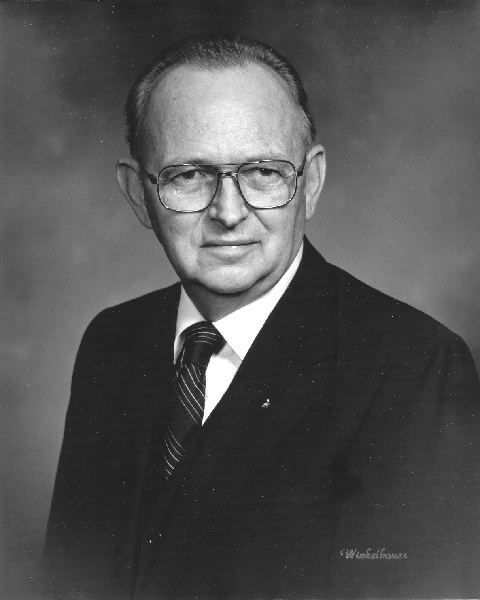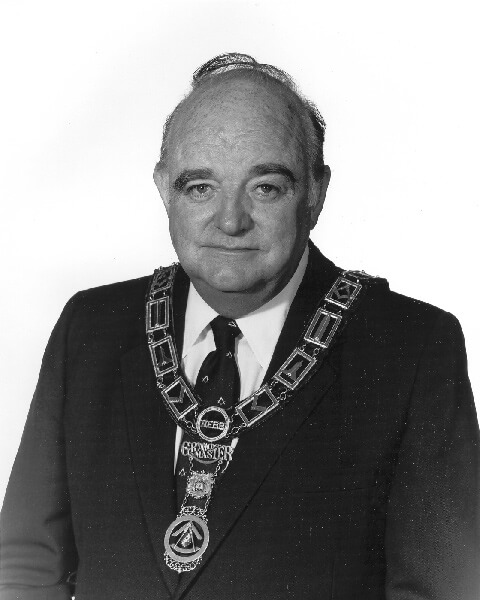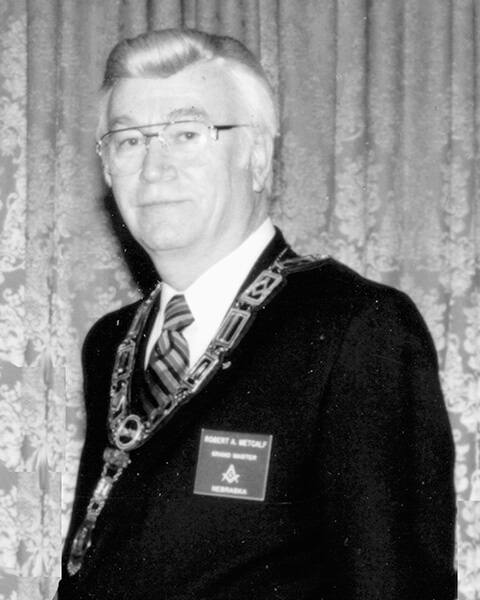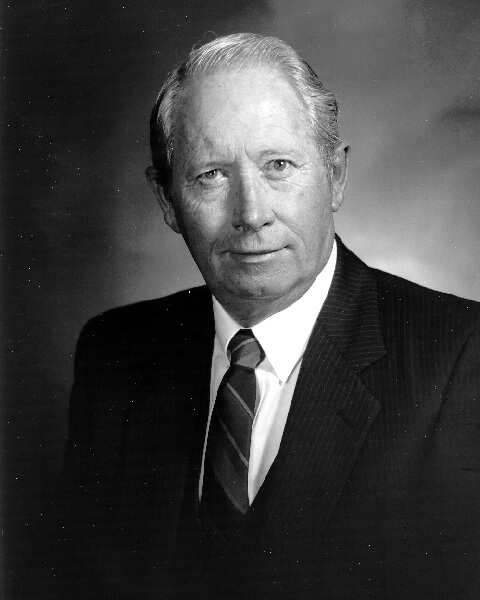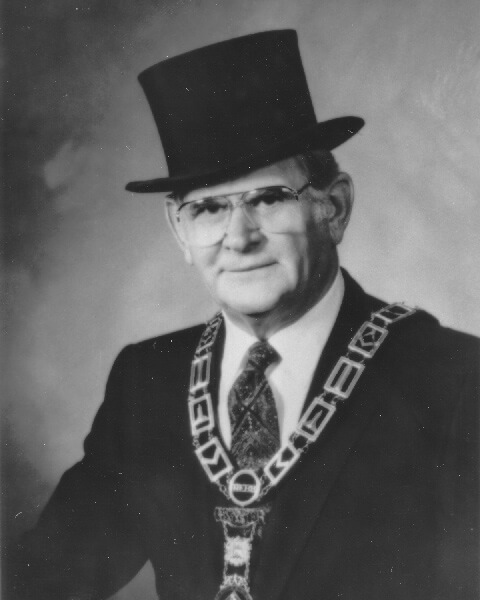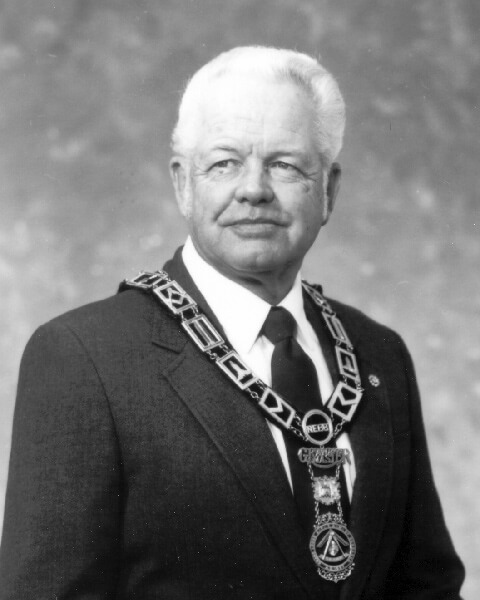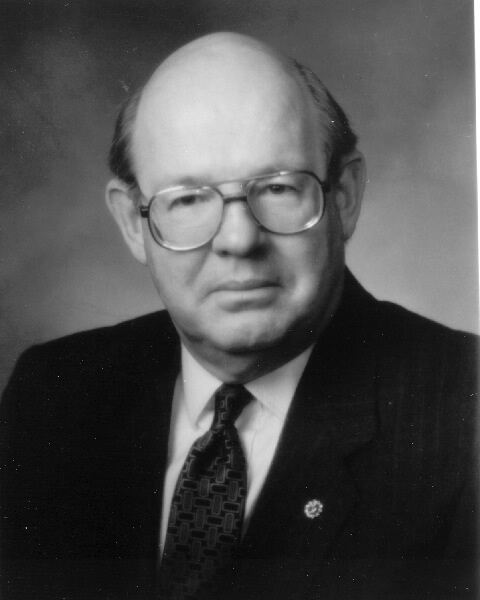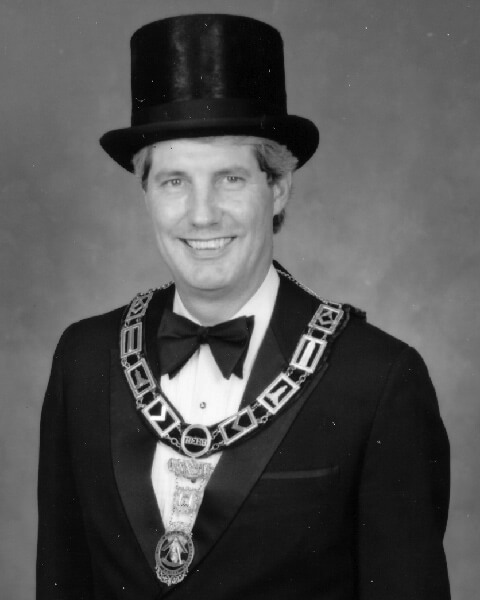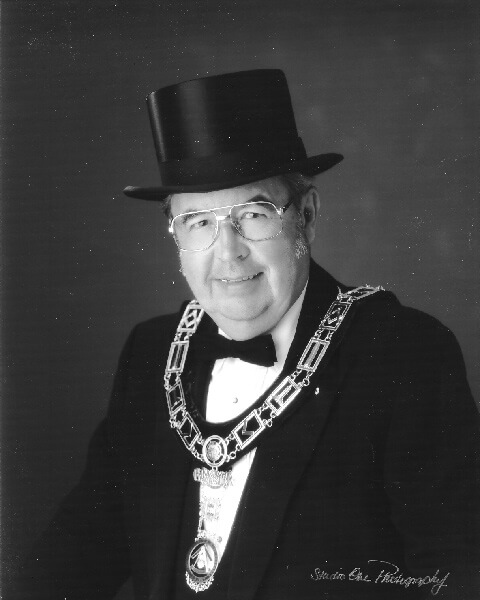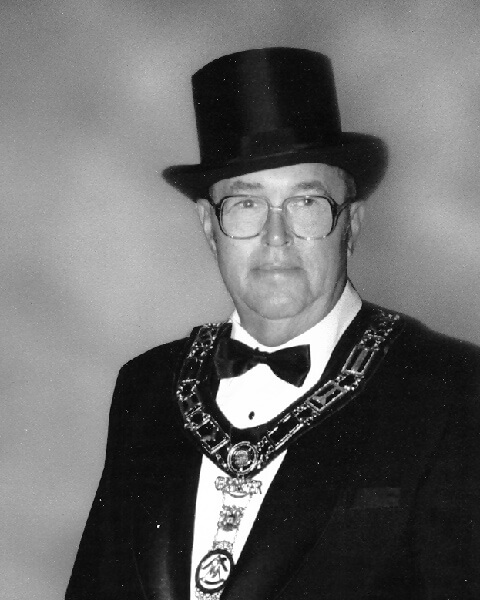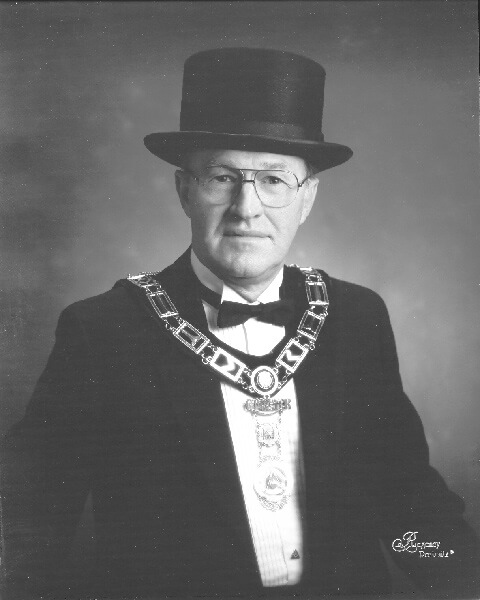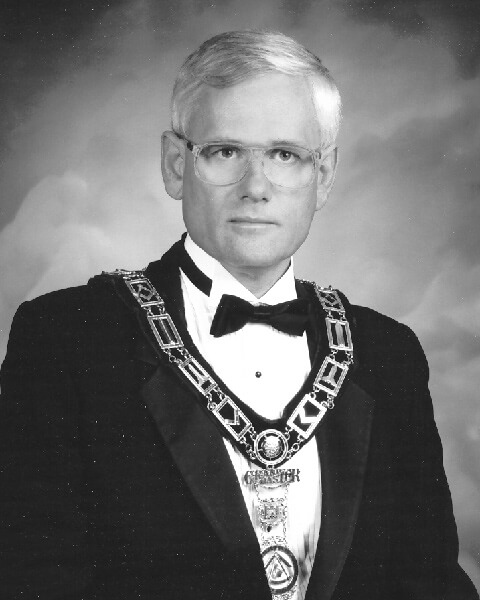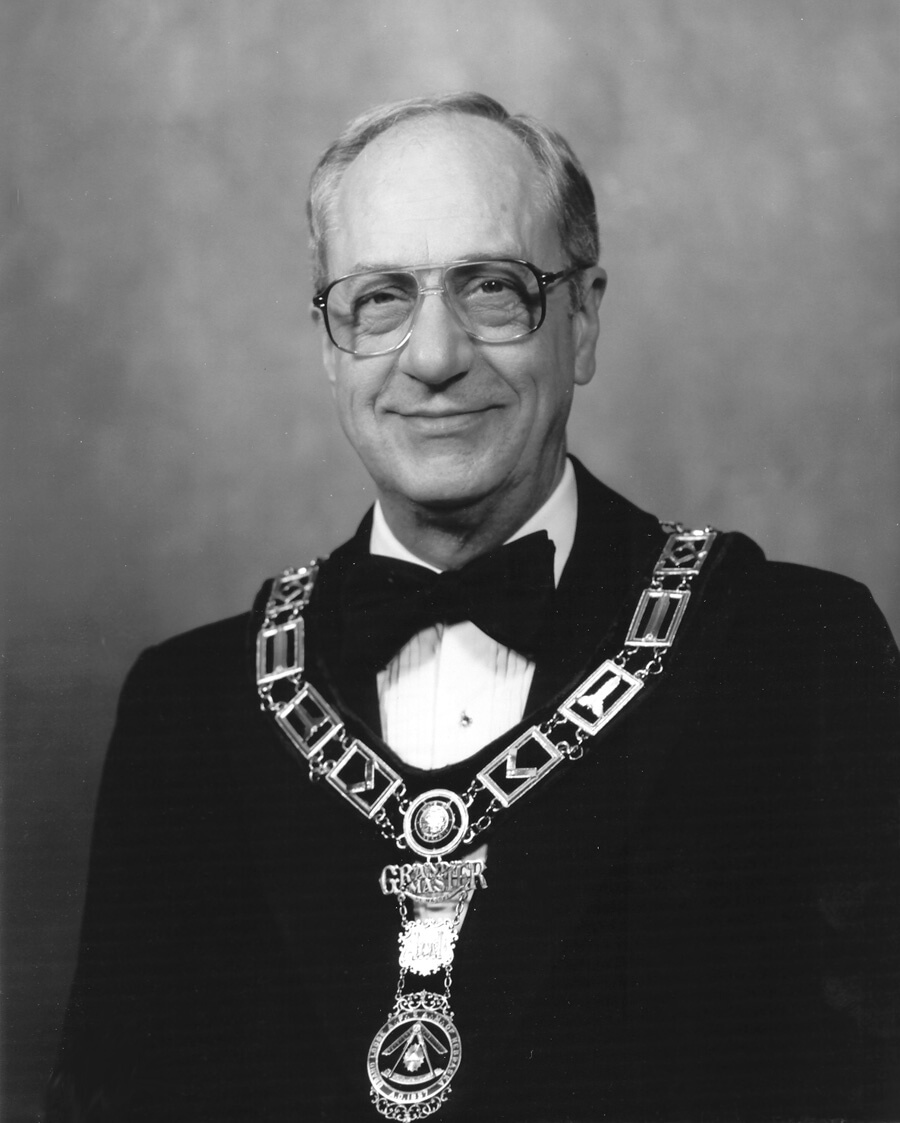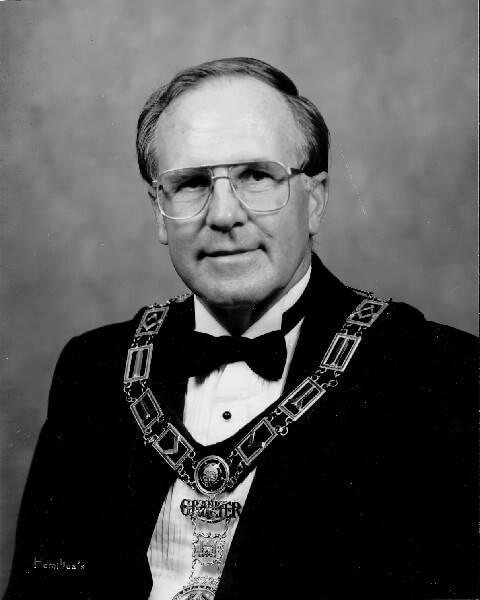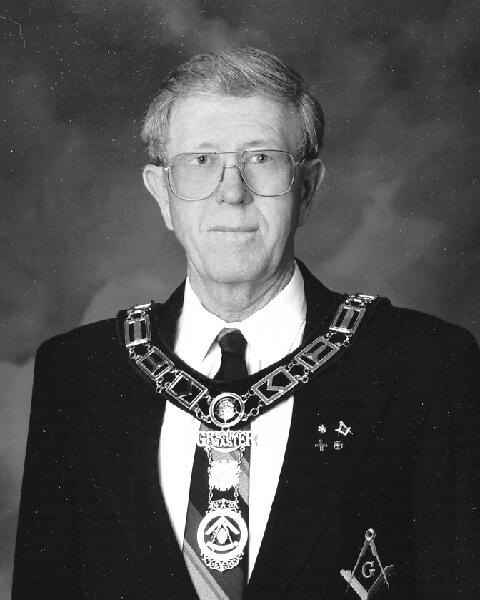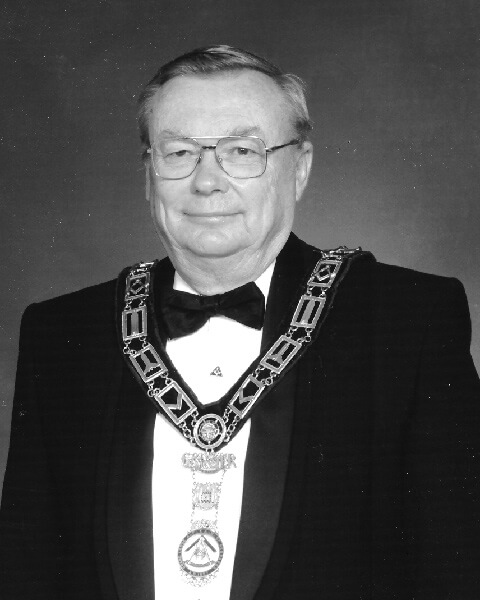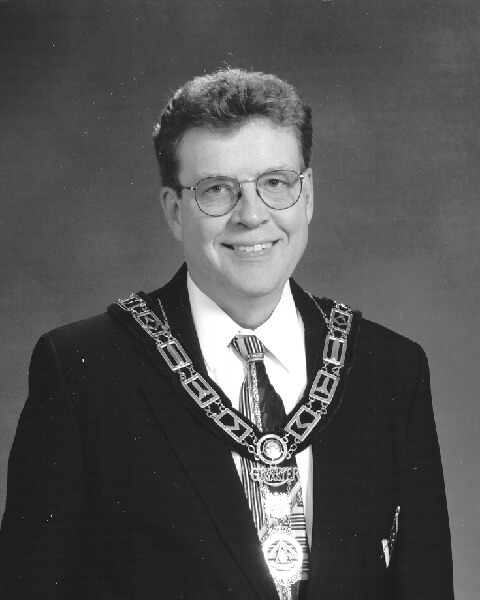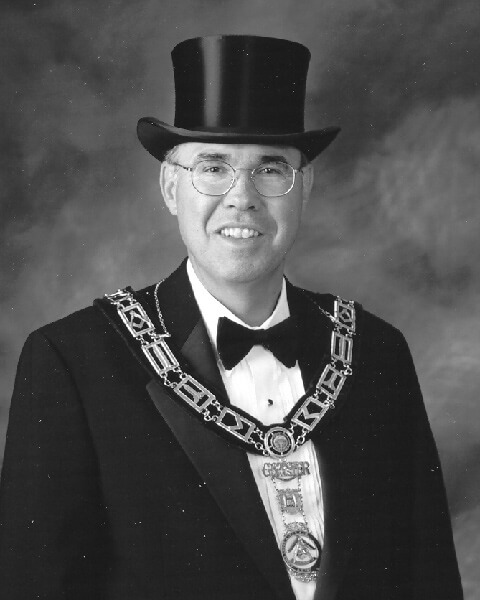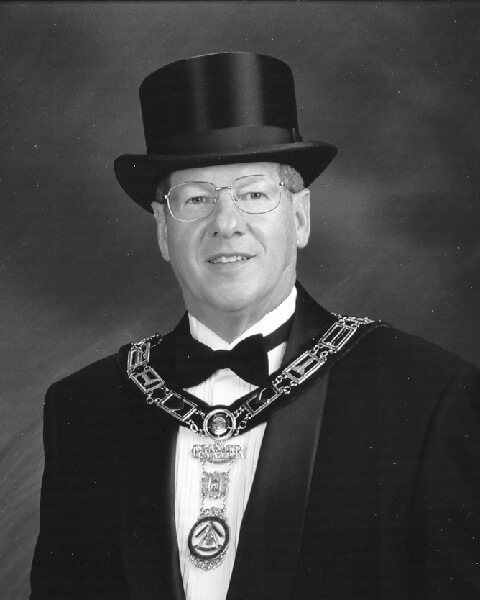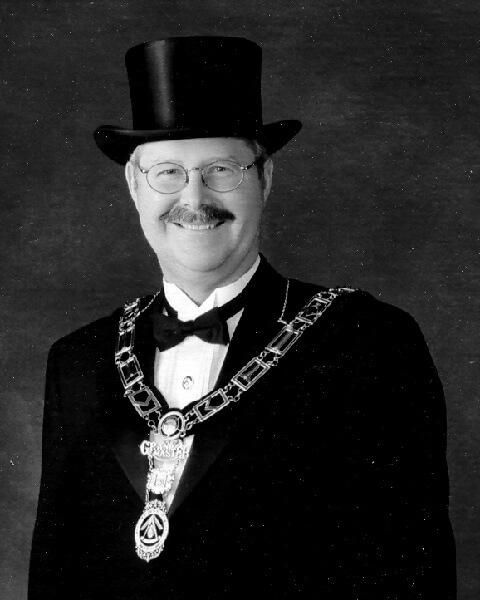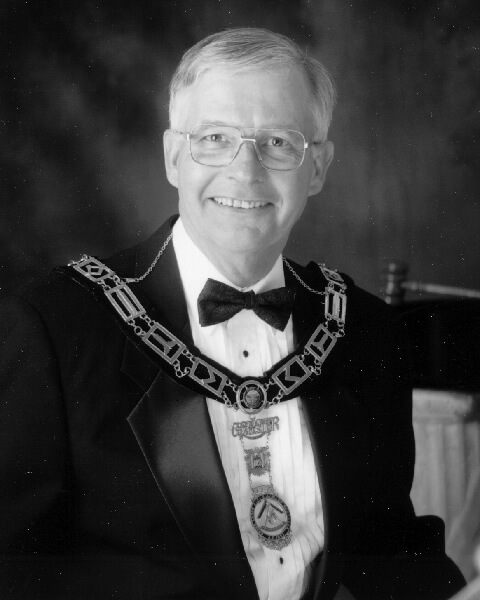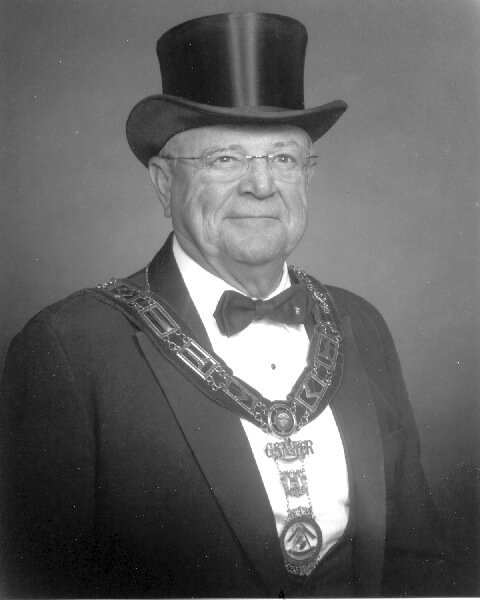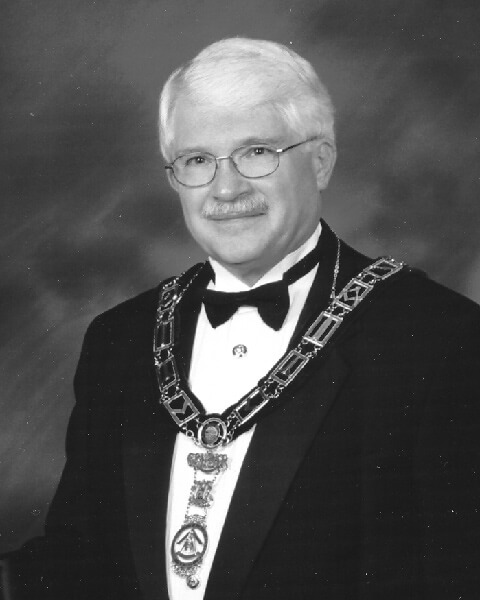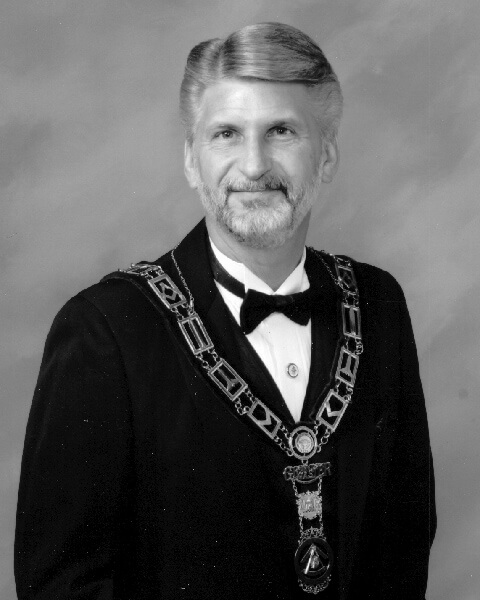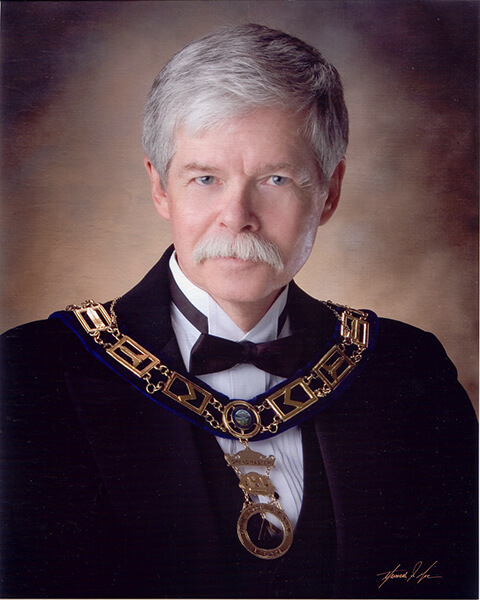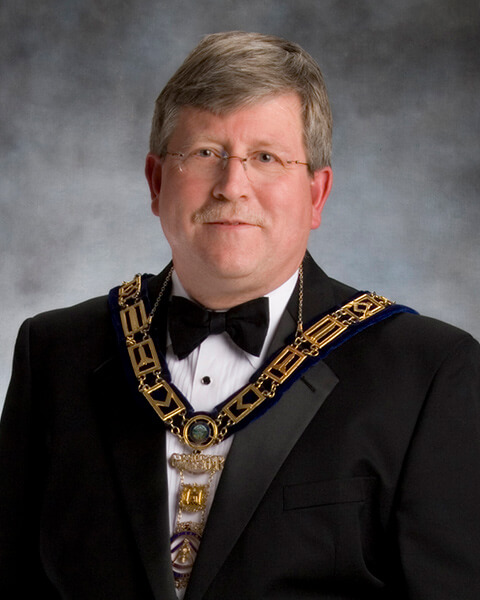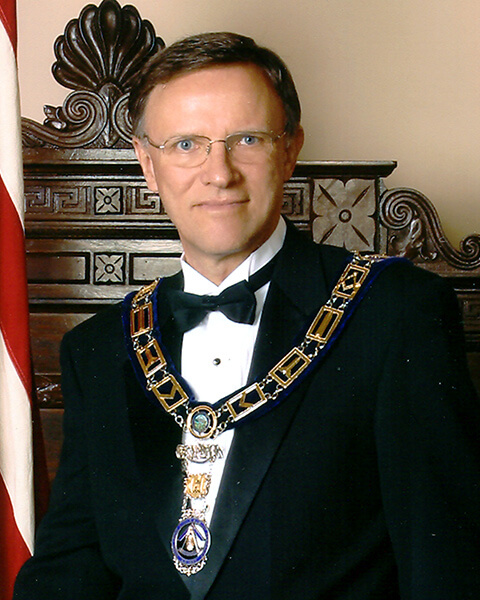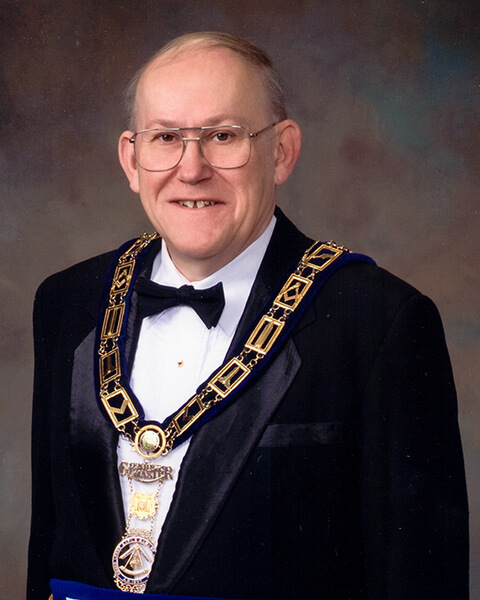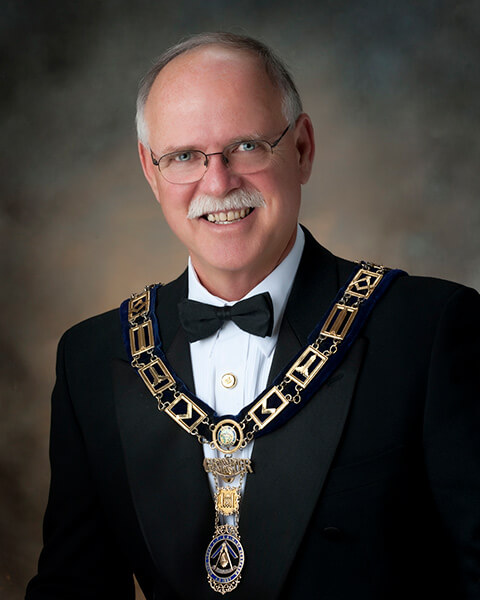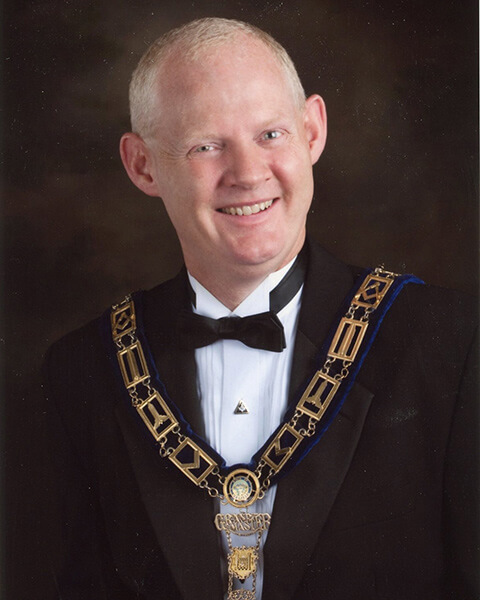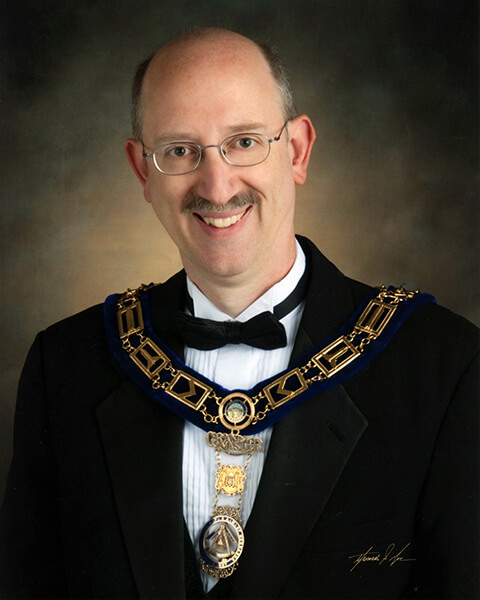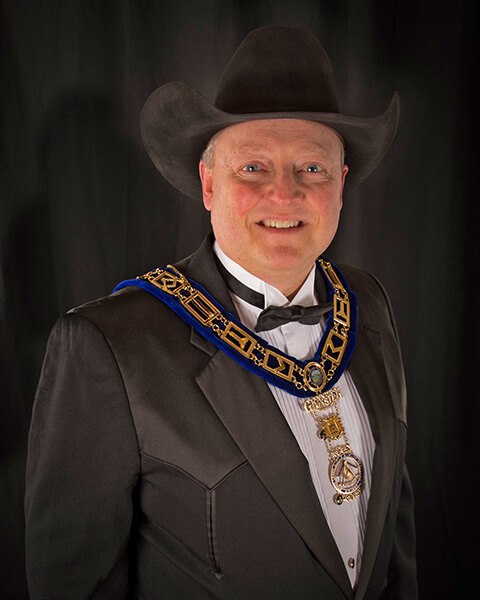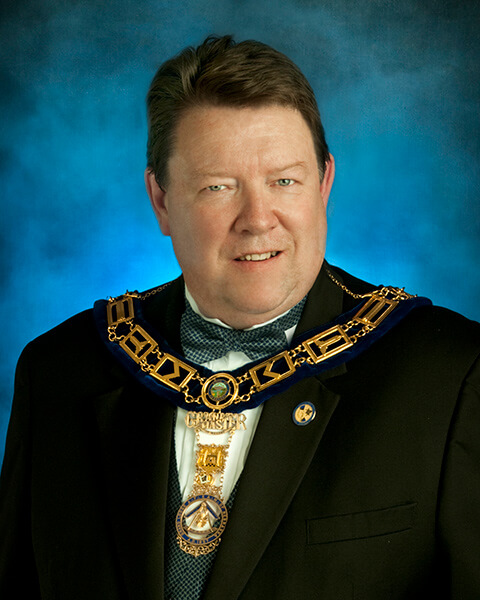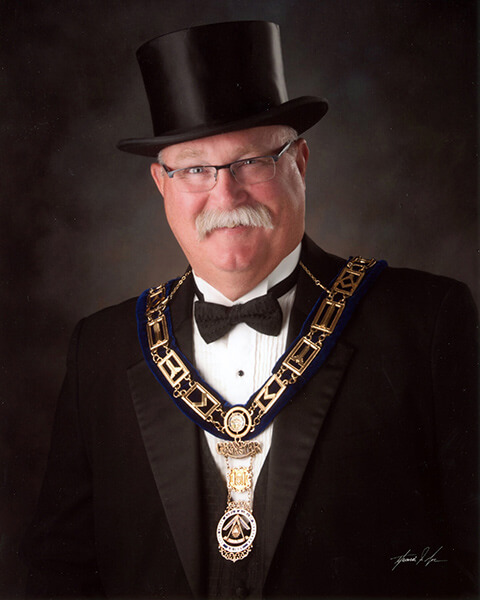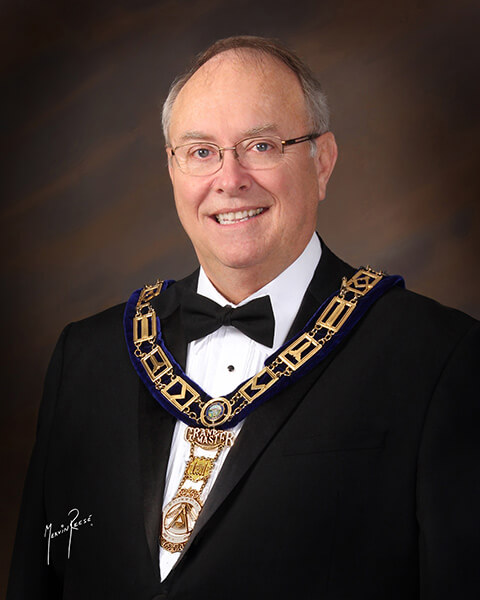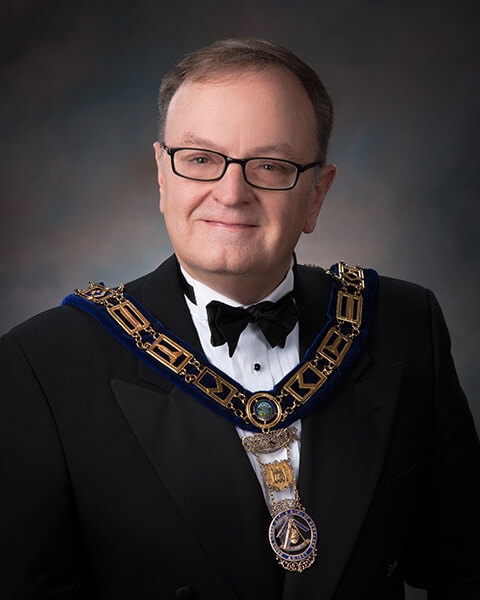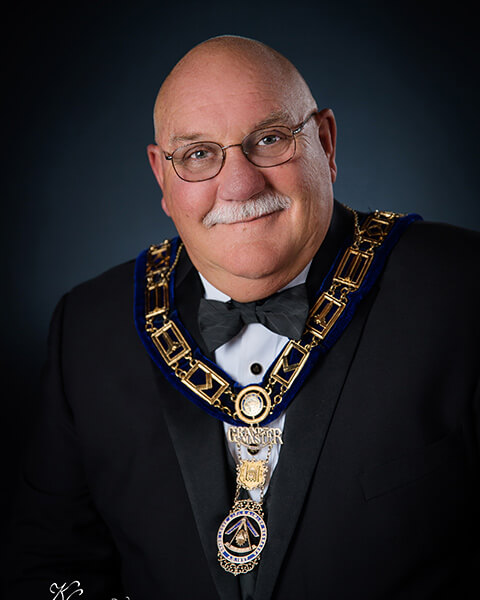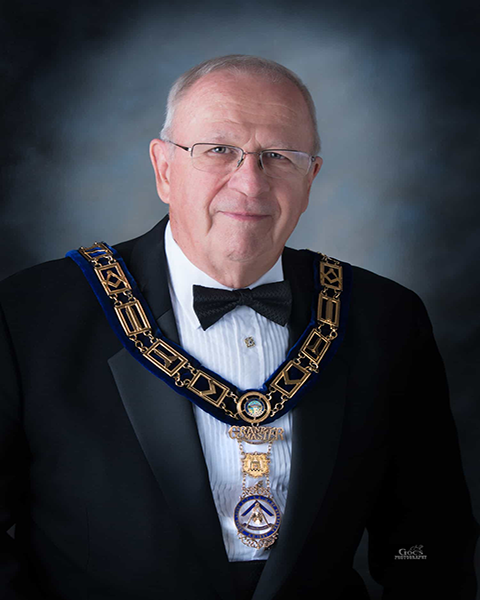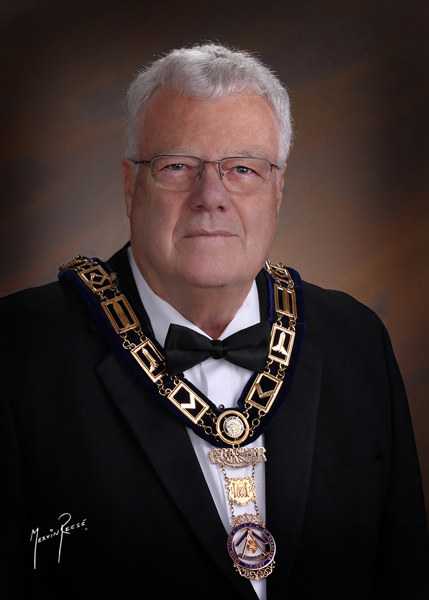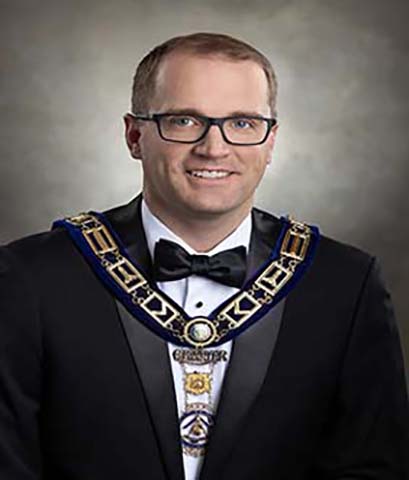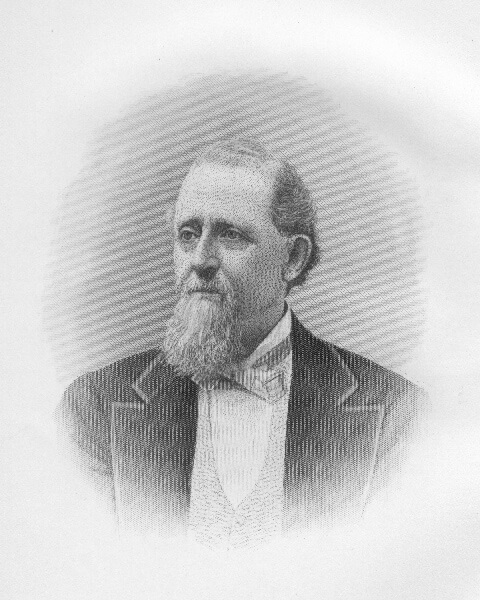

Robert C. Jordan
1857 – 1860 : 150 Book – p.2
Omaha
1857
Robert C. Jordan, Grand Master
The Grand Lodge of Iowa chartered Capitol Lodge No. 101 in Omaha on June 3, 1857. On September 23, 1857, Masters and Wardens of three lodges of Masons from the Territory of Nebraska organized a Grand Lodge.
Transportation on the Missouri River consisted of an occasional steamboat. When the members of Giddings Lodge No. 156 in Nebraska City were ready to leave for the meeting in Omaha to organize the Grand Lodge, no steamboat had arrived to journey up the Missouri River. The brothers walked the entire distance to and from Omaha and slept under the stars.
A committee of three was appointed to determine how to carry out the formation of a Grand Lodge: Robert C. Jordan of Capitol Lodge, L. L. Bowen of Nebraska Lodge, and H.N. Cornell of Giddings Lodge. The group decided the Master of the oldest lodge present preside over the first meeting. Brother David Lindley of Giddings Lodge presided.
The three lodges attending changed their names:
- Nebraska Lodge No. 184 at Bellevue was changed to Nebraska Lodge No. 1
- Giddings Llodge No. 156 at Nebraska City was changed to Western Star Lodge No. 2
- Capitol Lodge No. 101 at Omaha was changed to Capitol Lodge No. 3
Robert C. Jordan, Junior Warden of Capitol Lodge in Omaha, was elected Grand Master. Jordan was elected to membership at Capitol Lodge No. 3 in September 1857, and became Master of the lodge at the next election in December. He served as Master of Capitol Lodge and the Grand Lodge at the same time. Jordan previously served as Master of Aurora Lodge No. 48 in Portsmouth, Ohio, in 1849-50.
Other officers were L. L. Bowen of Nebraska Lodge in Bellevue, Deputy Grand Master, and David Lindley of Giddings Lodge, Grand Senior Warden. They were installed by Most Excellent Brother J.A.W. Buck of Illinois.
L. L. Bowen, David Lindley and George Armstrong of Capitol Lodge were appointed to draft and procure passage allowing incorporation of the Grand Lodge from the Nebraska General Assembly.
Grand Secretary George Armstrong was authorized to collect $50 from each lodge to meet the expenses of the Grand Lodge.
The Rules of Order for conducting the business of the Grand Lodge included the following:
• When the M∴W∴ Grand Master, or presiding officer, rises, all debate shall cease, and there shall be strict silence.
• Every member shall stand when he speaks, and shall address himself with respect and decorum to the presiding officer for the time being. He shall not be permitted to say anything which will have a tendency wantonly to inflame or irritate, as the sole objects of debate are to enlighten and expand the mind on the subject under discussion, to elicit truth, and to conscientiously endeavor to have everything done decently and in order.
1858
Robert C. Jordan, Grand Master
September 23, 1857 – June 3, 1858
Reported at the 1st Annual Communication
The Grand Lodge of Ohio was the first to welcome the Nebraska Grand Lodge into the family of Grand Lodges.
The Grand Secretary was authorized to purchase jewels for the Grand Lodge officers.
Non-affiliated members concerned the Grand Master. He pointed to men claiming to be Masons “in our midst for a year” who had failed to connect with a Nebraska lodge. “It is admitted by all to be a great evil,” he said.
Nebraska’s lodges were not visited by the Grand Master, but he said, “…I am pleased to learn that all the lodges have been prospering and are in a healthy condition.”
After the Grand Master provided instruction in the work, delegates voted that Cornelius Moore’s Craftsman work be used in the jurisdiction.
Charters were issued to Nemaha Valley Lodge No. 4 in Brownville, Omadi Lodge No. 5 in Omadi (near South Sioux City) and Plattsmouth Lodge No. 6 in Plattsmouth. Their delegates were seated at the Annual Communication, which increased the number of voting delegates attending to 15.
In 1857, fees were set at $5 for each initiation and $1.50 for dues. The Grand Master a year later said the fees were “...a burthensome tax upon the lodges, calculated to do injury, particularly during the present prevailing difficulties in monetary affairs...” An amendment was adopted that reduced the fees to $3 for initiation and $1 for dues.
The Bible is God’s Holy Word, said the Grand Master. He noted other Grand Lodges were questioning that opinion and whether they could demand a candidate’s agreement to proceed with degrees. He asked the delegates to go on record declaring the Bible as God’s Holy Word.
Other Grand Lodges had also stated there was too much religion in lodges. “Gambling, profanity, intemperance and debauchery in general prevailed to an alarming extent among the members,” the Grand Master said in asking the delegates to express their opinions regarding these vices.
The Grand Master said he was concerned that Nebraska members hailed from nearly every state in the Union, resulting in important variations in the work. “A uniform system of work is one of the most desirable objects to be obtained,” he said. He proposed that all lodges exhibit their work at that Annual Communication.
The Grand Master remarked that a history of the start of each lodge should be prepared for the interest of future generations, and a resolution passed requesting a history from each lodge. The origins of the first six lodges were included in the 1860 Proceedings, and the Grand Master required that before a charter could be granted, each application must include “facts, incidents and preliminary steps connected” with its organization.
It was recommended to Nebraska lodges that they send funds to the Grand Lodge of Virginia to purchase the home and grave of George Washington to bring him “into the circle of our mystic tie.”
The Grand Master issued an edict forbidding lodges from receiving visitors from New York not in possession of a required Grand Lodge certificate. His action was prompted by a similar action of the Grand Lodge of Illinois. A schism in the Grand Lodge of New York that resulted in the creation of a competing Grand Lodge caused concern that unrecognized Masons may try to visit lodges.
The Grand Lodge of Nebraska was incorporated by the House of Representatives of the Territory of Nebraska on June 1, 1858. The act was titled, “An Act to Incorporate the Grand Lodge of Free and Accepted Masons of Nebraska.”
1859
Robert C. Jordan, Grand Master
June 3, 1858 – June 15, 1859
Reported at the 2nd Annual Communication
The Grand Master said an error was made when blank paper charters were purchased instead of parchment after forming the Grand Lodge in September 1857. It was done for the sake of economy. But, just two years later, some charters were already “mutilated.” He ordered blank parchment charters be obtained and the Grand Secretary fill them out and forward them to each lodge. The lodges were then to return the original charters to the Grand Secretary.
The Grand Lodge Rules and Regulations were amended and required that every candidate apply to the lodge nearest his residence.
It was required by the rules and regulations that all lodge officers should be elected. The rule was changed so that the Senior Deacon and Tyler were appointed by the Master, and the Junior Deacon was appointed by the Senior Warden.
The Grand Master appointed a School Fund Committee to provide education for the orphans of Master Masons.
The subject of organizing a General Grand Lodge of the United States was discussed in some jurisdictions. A resolution was approved supporting the Grand Master’s opposition to these efforts.
The Grand Master objected to an amendment that would have changed the date of election and installation from the “almost universal custom” of electing officers before St. John the Evangelist’s Day (December 27) and installing on that day, to electing before St. John the Baptist’s Day (June 24) and installing that day.
Although no new lodges were started in the territory the previous year, the Grand Master said the existing lodges had made steady improvement and good and true men were made Masons. “If this course be pursued in the future, there can be no doubt of success.”
Three requests were received to create lodges in the territory, but the Grand Master postponed acting on them because of “extreme difficulties” related to “monetary affairs” and the lack of suitable rooms to meet. He added that a large increase in business the previous year indicates a return to prosperous times, and more lodges could be expected in the coming year.
The fifth rule of the Grand Lodge stated all business occurred in a lodge of Master Masons, except the conferring of inferior degrees. The Grand Master said it was an injustice to Entered Apprentices and Fellow Crafts who could not ballot for candidates for those degrees. “I consider the rule has another objectionable feature, that is, in consuming much time in the opening of the different lodges for examining, balloting, etc.” He said in other Grand Lodges where the rule had existed, it was rescinded, which he recommended to the delegates.
The Grand Master urged Nebraska Masons to help the Grand Lodge of Virginia assist the Ladies Mt. Vernon Association purchase the homestead, tomb and some of the land that was once the home of George Washington. The group asked a donation of $1 from every Mason, and a resolution was passed that Worshipful Masters ask members to participate.
The Grand Master pointed out that some lodges elected a Master who was perfect in ritual but “whose deportment will not bear the test of the square.” He continued, “The consequence frequently is that before his term of office expires he is guilty of some misdemeanor which is looked upon as disgraceful...”
Noting that the current time was called the “progressive age,” the Grand Master said the foundations of Masonry were laid by workmen who did not intend it would be experimented with by “uneasy minds which are never satisfied to let alone that which is good. Hence the wise provision made in the installation ceremony of every Master of a Subordinate Lodge ‘not to suffer any innovations.’”
Lacking instructions about how much to spend on jewels for the Grand Lodge officers, the Grand Secretary did not purchase them.
1860
Robert C. Jordan, Grand Master
June 15, 1859 – June 6, 1860
Reported at the 3rd Annual Communication
The Grand Master was unable to attend Annual Communication, his third and final year as head of the fraternity. L. B. Kinney served in his office as pro-tem.
The discovery of gold in the West put a burden on the six lodges comprising the Grand Lodge. A number of members “possessed with a spirit of adventure” left lodges with barely enough members to perform the duties of the lodge.
Western Star Lodge No. 2 in Nebraska City burned down, and many brethren lost property. A resolution passed at the Annual Communication urged Nebraska brethren to assist them in building a new lodge. A duplicate charter was issued to the lodge.
A committee appointed to purchase Grand Lodge jewels and to print 25 parchment charters submitted a bill for $128.50.
Three Nebraskans attended a national school of instruction in Cleveland, Ohio, where they acquired the Webb-Preston work.
The bylaws allowed Grand Secretary Robert W. Furnas to be paid a $150 salary. In consideration of the state of the Grand Lodge’s finances, he donated that amount to the Grand Lodge and did not charge for his services.
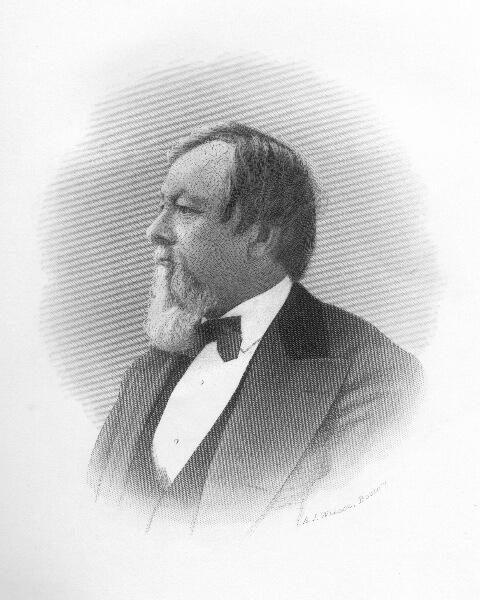

George Armstrong
1860 – 1863 : 150 Book – p.8
Capitol No. 3
Omaha
George Armstrong, Grand Master
June 6, 1860 – June 5, 1861
Reported at the 4th Annual Communication
With no new lodges started the first three years and membership maintaining a slow growth, the Grand Master attributed the situation to a poor economy and older brethren abandoning lodges to find fortune in the gold fields. To cope with the resulting low funds, the Grand Secretary’s salary was reduced from $150 to $50 per annum.
A previous reduction of fees for dispensations and charters did not result in the establishment of a new lodge in the state. The Grand Master said the challenges to commerce the past three years continued in the sparse and scattered settlements in Nebraska.
The Grand Master granted dispensations to sojourning Craft for the following new lodges: Summit Lodge, Parkville, Colorado; Rocky Mountain Lodge, Gold Hill, Colorado; and Central City Lodge, Central City, Colorado. The dispensations for Summit Lodge and Rocky Mountain Lodge were issued to John M. Chivington, past Grand Chaplain in Nebraska, who became Colorado’s first Grand Master.
The Grand Master urged the six Nebraska lodges to work toward uniformity in their ritual work. A motion to adopt uniformity in work, as taught by Thomas Smith Webb, was approved unanimously, as well as Webb’s “Freemason’s Monitor or Illustrations of Masonry.”
A circular received from the Grand Lodge of Tennessee asked the nation’s 500,000 Masons to demand “arresting this terrible fraternal strife” of the Civil War. “I doubt not their appeal will enlist your hearty sympathies and ready cooperation,” stated Grand Master Armstrong. A resolution was approved urging a convention of Masons from the north and south in Washington D.C. to restore the union. It was sent to all Grand jurisdictions.
“In this hour of our country’s peril, what is the duty of the entire Masonic Fraternity of the country?” asked Grand Orator J. F. Kinney, referring to the Civil War. He pointed out that every Mason promises to be true to his country. He urged Nebraska’s Masons to remain steadfast supporters of the government and trade the gavel for the musket, the trowel for the sword and labor to the designs on the military trestle board. He also suggested the fraternity’s support of efforts of Masons in the north and south to end the conflict.
The Grand Master of Louisiana announced their adoption of the “Grand Lodge Representative System,” and asked for the appointment of a Brother as a representative to their Grand Lodge. North Carolina requested the same. Because these states were in rebellion and were “concerned in plots and conspiracies against government,” it was decided to be guarded in affiliations with Masonic organizations in those states. The Grand Lodge delayed a decision for one year.
A recommendation by Past Grand Master Jordan that Entered Apprentices and Fellow Crafts be allowed to ballot for candidates in those degrees was dismissed. The Grand Master said except for some Canadian and Kentucky lodges, this is not allowed by the Craft, including the 50-year-old Ohio Grand Lodge from whom Nebraska adopted its bylaws and rules and regulations.
The Committee on Permanent Location of Grand Lodge reported it would not be good policy to fix the meeting place because of sparse population, few lodges and doing so could be a hardship to new lodges. A resolution of thanks was sent to Brother M. J. Drummond, publisher and editor of the Masonic Messenger in New York City, for gathering $300 to aid Western Star Lodge No. 2 in Nebraska City which lost its property in a fire.
1862
George Armstrong, Grand Master
June 5, 1861 – June 4, 1862
Reported at the 5th Annual Communication
The prosperity of the lodges was retarded, the Grand Master reported, by the absence of members who left to fight for the Union Army in the Civil War. “The blood-stained banner of war still waves aloft in the fratricidal contest, and the horrid spectacle which excited our most poignant grief a year ago has been rendered more ghastly by the many bloody tragedies which have succeeded.”
A meeting of Grand Masters at Louisville, KY, which was agreed to at the last Annual Communication to try to resolve the Civil War, did not occur. The Grand Master said the idea was “infeasible” because the fraternity’s relations with both governments “are not such as to permit its interference with any line of policy either may see fit to adopt.”
Nebraska organized and installed officers of two lodges in Colorado under charters granted by the Grand Lodge of Nebraska. Since the Grand Lodge of Colorado had been organized, the lodges were moved under its jurisdiction, and Nebraska recognized the Grand Lodge of Colorado.
The “Freemason’s Monitor, or Illustrations of Masonry” by Thomas Smith Webb was adopted as the “text-book” to be used by subordinate lodges when performing work.
R. W. Furnas, the Grand Secretary, was absent from Nebraska Territory when commissioned by the President as a Colonel of Volunteers.
It was reported that progress was made in effecting a uniformity of work following the use of “Webb Work.” A substitute stepped in to work with three lodges, when the Grand Lecturer, who held a commission in the Regiment of Volunteers, was absent most of the year.
A committee was appointed to prepare a code of bylaws for subordinate lodges.
Dispensations were granted for the formation of lodges in Peru and Decatur, the first lodges in Nebraska since 1858.
1863
George Armstrong, Grand Master
June 4, 1862 – June 23, 1863
Reported at the 6th Annual Communication
The Grand Master wasn’t able to attend the Annual Communication of the Grand Lodge due to “duties connected with my position as an officer in the Second Nebraska Cavalry compel me to leave for the West.” He left one week before Annual Communication.
A resolution was adopted stating the “Webb work” as the true and ancient work practiced by the fraternity in America a century or more ago. And, it ordered each Nebraska lodge to adopt the work at their earliest convenience.
The Grand Secretary communicated with the maker of the Grand Lodge jewels about “the kind and quality of said jewels, for which $100 was paid,” and asked to exchange them for others.
A new dispensation was issued for a lodge in Bannack City, Idaho Territory. Because the dispensation took more than three months to return to Idaho, the Grand Lodge renewed the dispensation for another year.
By a vote of the Grand Lodge, Masters of subordinate lodges were required to read the Rules and Regulations governing lodges.
A resolution was passed ordering a lodge under dispensation in Peru to be discontinued.
The Installation Ceremony and Masonic Funeral Service were adopted and published by the Grand Lodge, the first ceremonies to be published.
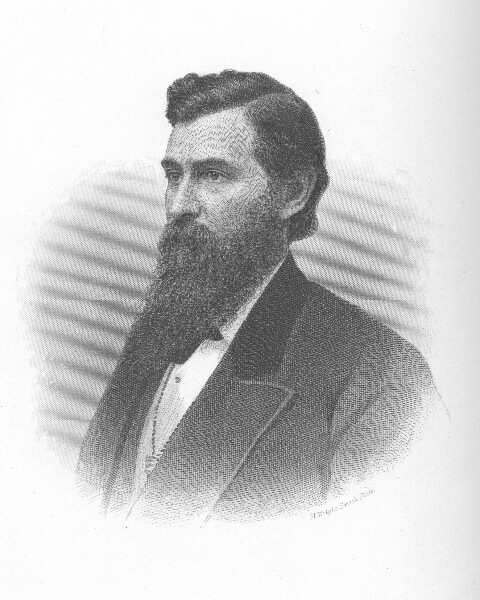

Daniel H. Wheeler
1863 – 1865 : 150 Book – p.12
Plattsmouth, NE
1864 Daniel H. Wheeler, Grand Master June 23, 1863 – June 24, 1864 Reported at the 7th Annual Communication
A dispensation was granted authorizing the organization of Monitor Lodge in the First Nebraska Regiment Infantry, located in the field. Military responsibilities prevented representatives from attending Annual Communication. It continued until 1866 when the dispensation was surrendered after 20 were initiated, 16 passed and 14 raised.
The Grand Master noted that little had been seen in “our young and beautiful territory” of the Civil War. He referred to the Charge that states Brothers should be true to their government and not rebel. He also discussed the Ancient Constitutions that members not act unjustly to any Brother.
The constitution was amended by adopting a resolution making the first five Grand Officers elective and the others appointive by the Grand Master. In addition, “Grand” was added to the titles of officers.
The Conservators Association, a group dedicated to the use of the ancient Webb-Preston work, and twice affirmed as the only ritual used by our Masonic fathers, received the Grand Master’s endorsement. Attacks on the Conservators were unjustified, he said.
A committee was appointed to investigate the “genealogy” of the Webb-Preston work. Its conclusions were that the work approved by Nebraska was received by Barney from Webb in 1815; Webb from Preston about 1795; Preston from his predecessors about 1775. That no other work practiced in the U.S. has a genealogy worthy of consideration. And that nothing in its examination “has shaken our confidence in the work heretofore adopted by this Grand Lodge.”
A motion was passed requiring lodges to obtain a sufficient number of lambskin or white leather aprons to initiate new members.
A new dispensation was issued to a lodge in Bannack City, Idaho Territory, to continue its work. Another was granted at Nevada City, Idaho Territory.
It was pointed out by the Grand Master that although membership numbers had steadily increased, there was no “unnatural growth, indicating a diseased instead of a healthy condition.”
1865
Daniel H. Wheeler, Grand Master
June 24, 1864 – June 24, 1865
Reported at the 8th Annual Communication
The Grand Master noted that Nebraska had enjoyed comparative peace while brethren in many states suffered the horrors of the Civil War. “…the darkness of war’s night is fast passing away, and the angels of mercy and peace are descending upon our nation,” he said.
A resolution was passed praising R∴W∴ Brother A. G. Mackey, Grand Secretary of the South Carolina Grand Lodge, “for the noble aid he has extended to distressed brethren, who, as soldiers of the Union were confined in Southern prisons, thereby proving himself a Mason in truth.” It noted that his faithfulness to his vows impoverished himself in furnishing aid and comfort to Union soldiers, which saved many lives.
The Grand Master stated a section of the Grand Lodge Constitution was “irregular and unmasonic” that related to the election of the Deputy Grand Master. He urged the body to make the position appointed because “Masonic custom and law teach” that as his representative, the Grand Master is responsible for his actions. The Grand Lodge rejected the idea.
Although brethren in Columbus sent funds to the Grand Lodge, no charter had been issued. The Grand Master provided a dispensation and recommended a charter be issued bearing the date June 24, 1864.
The Grand Lodge adopted a resolution stating it was “unwise and irregular for any subordinate lodge in this jurisdiction to initiate, pass or raise more than one candidate at a time.” But, it did allow the giving of the lectures and charges to any number at the same time.
The Committee on Foreign Correspondence hadn’t reported for two years because of low finances to print a report, and the committee received proceedings from other states at a date that didn’t allow them to prepare a thorough report. A resolution was passed making the Grand Secretary the chair of the committee since he received the proceedings throughout the year.
